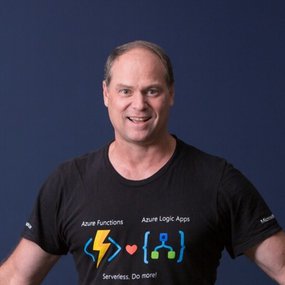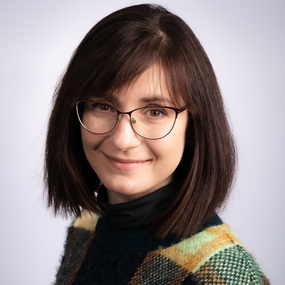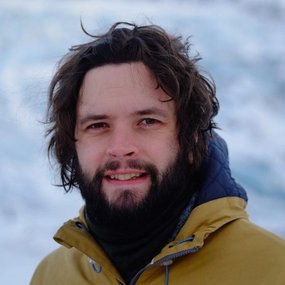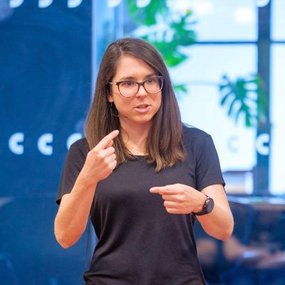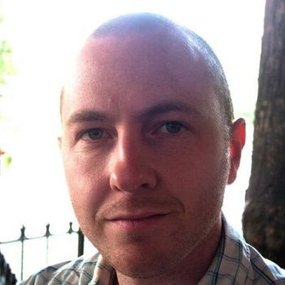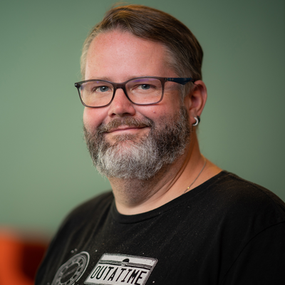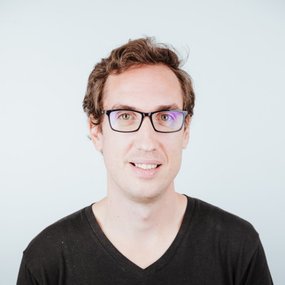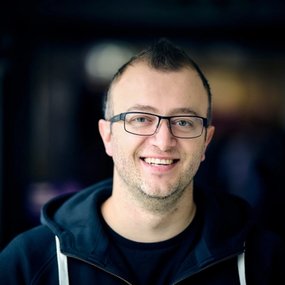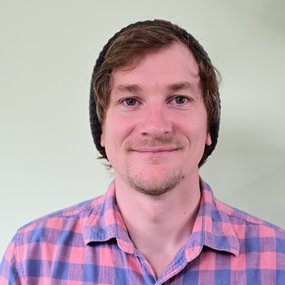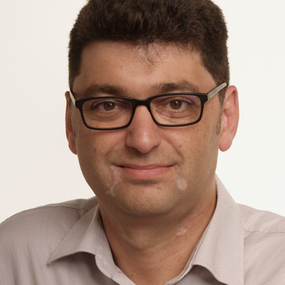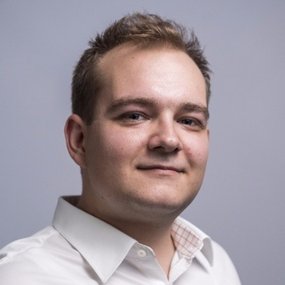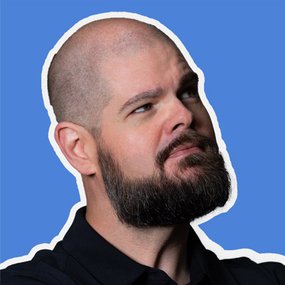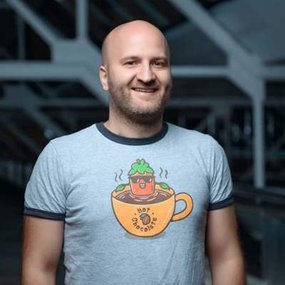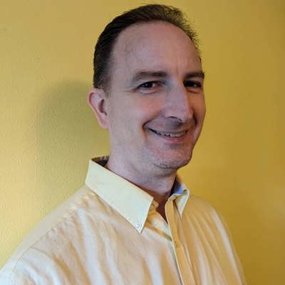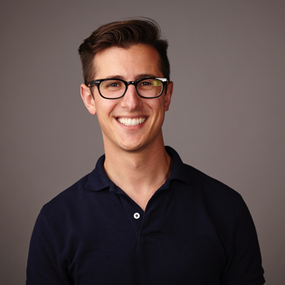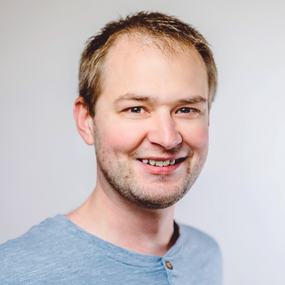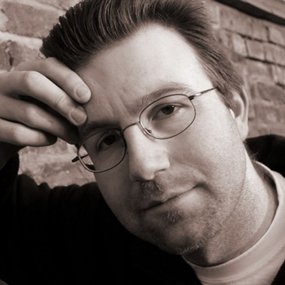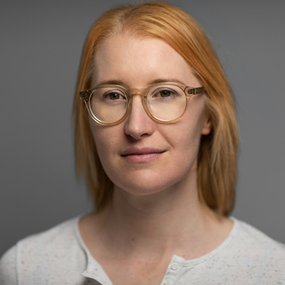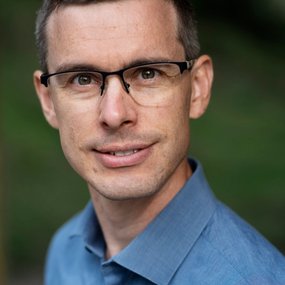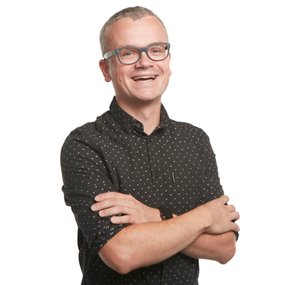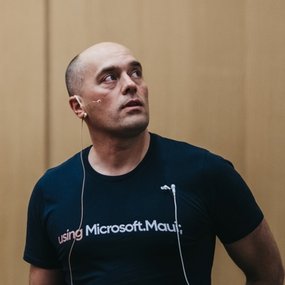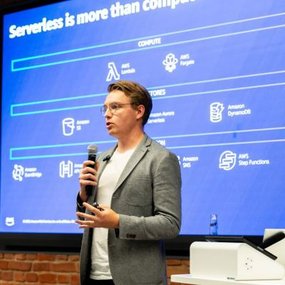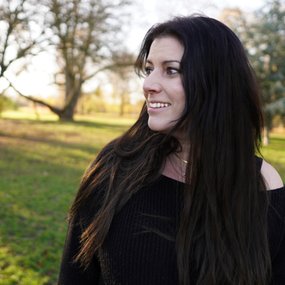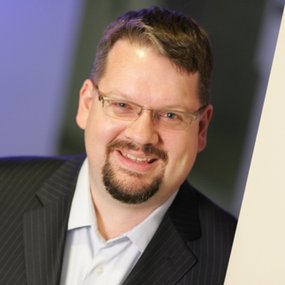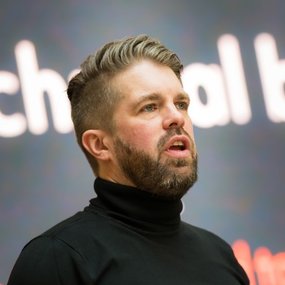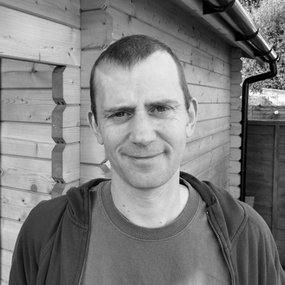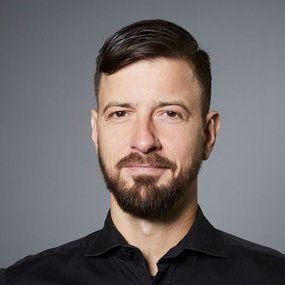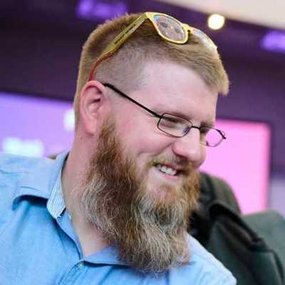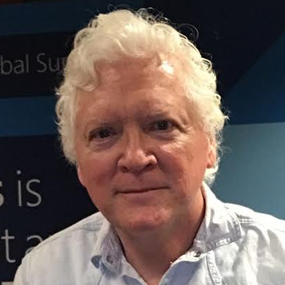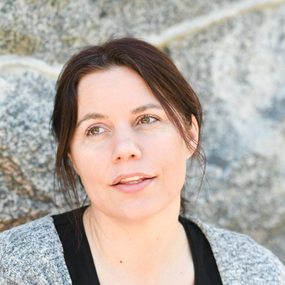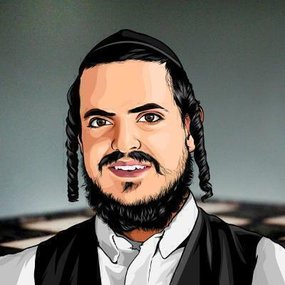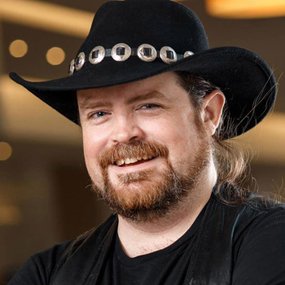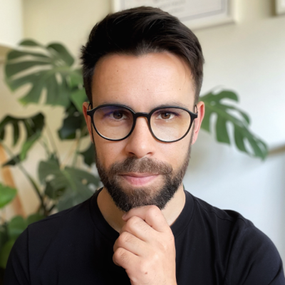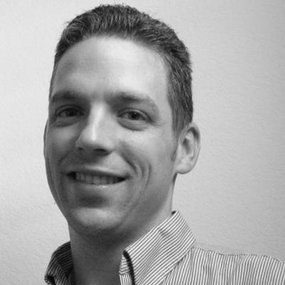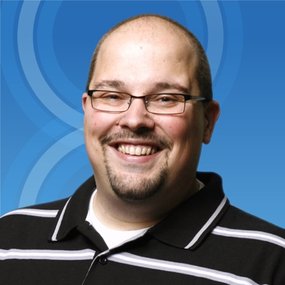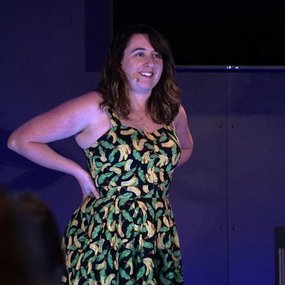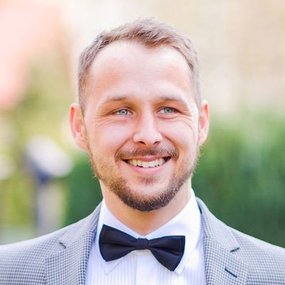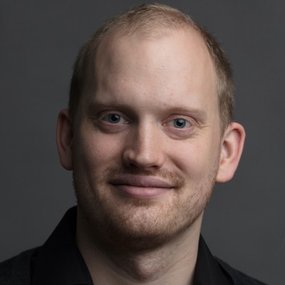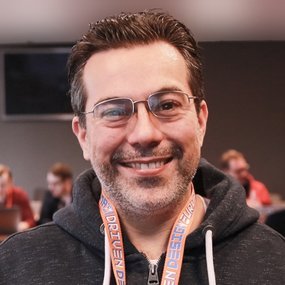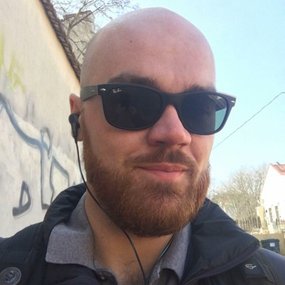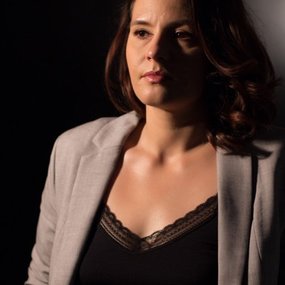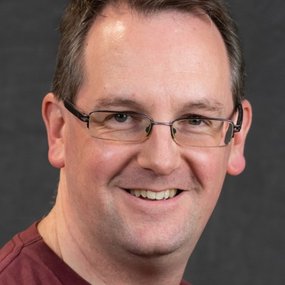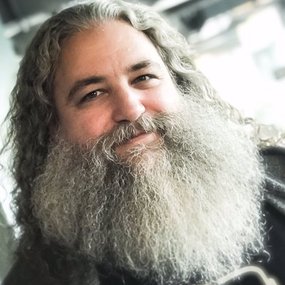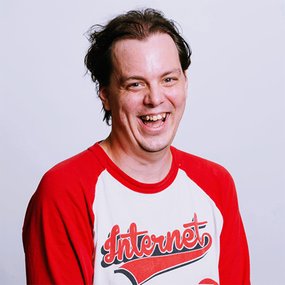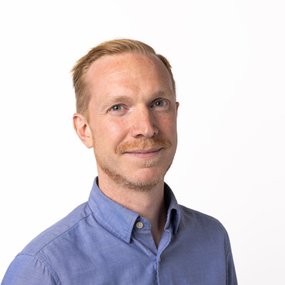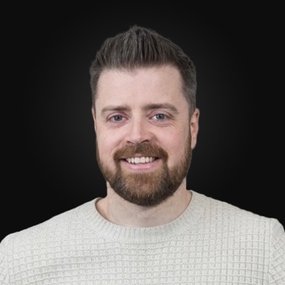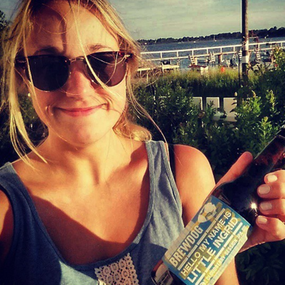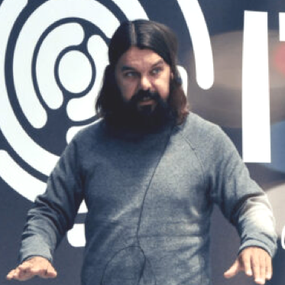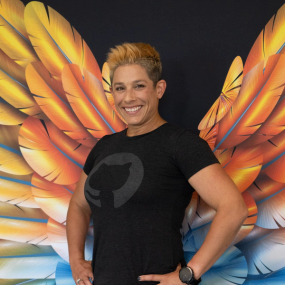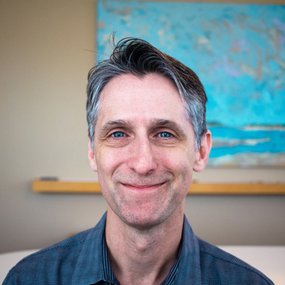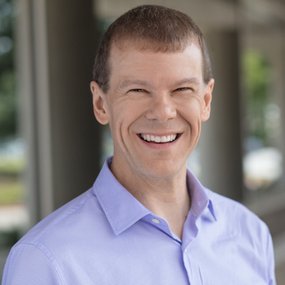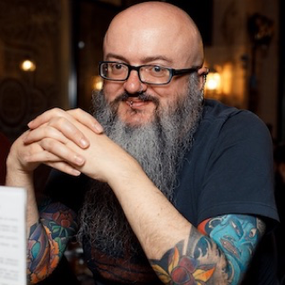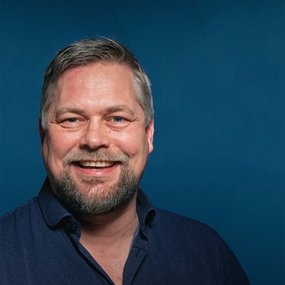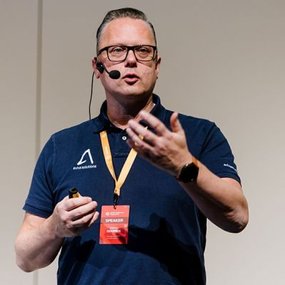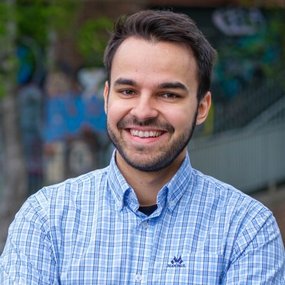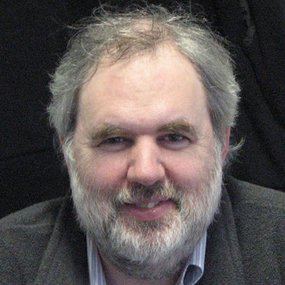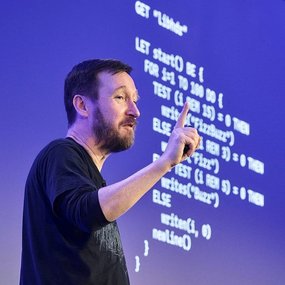There’s a myriad of complexity involved in building systems. However, two decades in software engineering taught me what truly makes or breaks a system: decisions. It’s not the programming language, the data store, the deployment model, or [insert your favorite tech here]. It’s about the decisions made and the ripple effects they cause. We spend endless hours trying to keep up with the latest and greatest in an industry that sprints faster than a caffeinated cheetah... But how much time was invested in questioning, improving, or, essentially, debugging our thinking process?
How do you structure your decisions, and how do they affect the software you build? When suboptimal decisions occur, do you reflect on the decision-making process itself? I've spent the last few years debugging my decision-making thought process, placing breakpoints to inspect which assumptions got me here and what alternatives I may have missed. As a result, my thought process became much more structured and streamlined, leading to better-balanced decisions. Join me in this session to explore how critical thinking can transform our decision-making process and elevate the quality of the solutions we build for our users.
- day: Wednesday
- room: Room 1 - Level 3
- time: 09:00 - 10:00
- timezone: (UTC±00)
- type: Talk (60 min)
Laila Bougria is a software engineer and solution architect with over 15 years of experience in the .NET space. She's a Microsoft Azure MVP and frequent speaker at conferences around the world. Currently, Laila is busy building NServiceBus at Particular Software and solving distributed riddles. When she's not immersed in code, Laila enjoys indulging in her favorite pastime - knitting! She finds that tangling the yarn into beautiful patterns helps untangle her thoughts.
In today's world apps are expected to update instantly and your users demand to collaborate and play games in real-time. One way to do that is by using SignalR.
During this session Gerald will teach you what SignalR is, how to use it in different ways and blow you away with a couple of cool demos showing real-time connections between native mobile apps with .NET MAUI and web apps built with ASP.NET and Blazor.
- day: Wednesday
- room: Room 1 - Level 3
- time: 10:20 - 11:20
- timezone: (UTC±00)
- type: Talk (60 min)
Meet Gerald Versluis, software engineer at Microsoft, who wields the power of .NET MAUI to conquer any project that comes his way. With a career spanning over a decade, he's tackled it all, from frontend to backend and everything in between, using Azure, ASP.NET, and all the other .NET goodies.
But it wasn't until he discovered the magic of Xamarin that he truly fell in love with mobile and cross-platform development, becoming an active community member and sharing his knowledge through writing, tweeting, and presentations. When he's not saving the world of software, you can find him on Twitter @jfversluis, blogging at https://blog.verslu.is, or making videos on his YouTube channel: https://youtube.com/GeraldVersluis.
In this talk, we will explore how the Browser Rendering API can automate browser tasks. We will begin with an overview of Cloudflare Workers and how they enable running JavaScript at the edge. Then, we will discuss browser automation in detail, covering how to interact with the DOM, fill out forms, and scrape data from web pages.
I'll showcase real-world examples of how browser automation with Cloudflare Workers can improve the user experience of web applications, and automate tasks, such as generating screenshots and PDFs of web pages, Attendees will gain a better understanding of how to use the Browser Rendering API to automate browser tasks and take their web development skills to the next level.
- day: Wednesday
- room: Room 2 - Level 3
- time: 10:20 - 11:20
- timezone: (UTC±00)
- type: Talk (60 min)
Gift Egwuenu is a Developer Advocate at Cloudflare. She has over 6 years of experience in web development and building tools to help businesses grow. In her previous role, she worked as a front-end developer. She is now working in developer relations.
Gift shares her experience in Web Development, Jamstack, and career-related topics, with the goal of helping people level up their skills in the industry.
Infrastructure as Code (IaC) is a powerful way to automate the deployment of your Azure infrastructure. With IaC, you can define your infrastructure in code, and use that code to deploy and manage your resources.
In this session, we will explore the different ways to use IaC in Azure, including Azure Resource Manager (ARM) templates, Microsoft's Bicep language processor, and popular open-source tools like Terraform and Pulumi. We'll also compare the pros and cons of each approach, and discuss when it's best to use each one. Whether you're new to IaC or a seasoned veteran, this session will provide you with the knowledge you need to take your cloud deployments to the next level.
- day: Wednesday
- room: Room 3 - Level 4
- time: 10:20 - 11:20
- timezone: (UTC±00)
- type: Talk (60 min)
A developer, business owner, consultant, cloud architect, Microsoft Azure MVP and an online instructor, Mike Benkovich is an alumni of Microsoft from 2004 to 2012 where he helped build developer communities across the US, thru work on Microsoft Across America, MSDN Events, MSDN Webcasts, DPE and Channel 9. He's helped to create and grow developer conferences and user groups in various cities across the US. While at Microsoft he helped create the Azure Boot Camp events that were run in cities across the US and at PDC and TechEd before it was transferred to the community. In 2009 he started a Toastmaster club for Geeks called TechMasters in Minneapolis where we still grow speakers for Conferences. He's a LinkedIn Learning Instructor for Azure, have developed many online courses. Mike actively works in Azure Cloud Governance, DevOps, Application Architecture and Software Delivery consulting.
Have you noticed the recent improvement in how our searches have become smarter? It's fascinating how vector search technology has enhanced our contextual search experience.
- day: Wednesday
- room: Room 4 - Level 4
- time: 10:20 - 11:20
- timezone: (UTC±00)
- type: Workshop (60 min)
Olena is a seasoned expert in data, sustainable software development, and teamwork. With a background in software engineering, she's led teams and developed mission-critical applications at Nokia, HERE Technologies, and AWS. Currently, she works at Aiven where she supports developers and customers in using open-source data technologies such as Apache Kafka, ClickHouse, and OpenSearch. She is also an international public speaker and regularly present at conferences around the world. She holds AWS Developer and Solutions Architect certifications, and is also a Confluent Catalyst.
What comes after ChatGPT? Vector database projects like Weaviate, Pinecone, and Chroma recently got millions of dollars of funding for their projects. But what are vector databases? And why will they be so important in the future?
Let us see how Vector Databases can help you define and run your machine learning business use cases. We will explore some real-world use cases and try to understand the potential of vectors and vector databases. A brief hands-on demonstration just using open source will give you an idea, of how to use the new generation of databases in praxis.We will also cover how vector databases can work together with chatGPT and helps you to overcome some limitations of chatGPT.
- day: Wednesday
- room: Room 6 - Level 5
- time: 10:20 - 11:20
- timezone: (UTC±00)
- type: Talk (60 min)
Erik is a Java and machine learning Enthusiast - Java -Coach, -Expert, -Consultant and Software Architect - who loves to talk about elegant software solutions and the achievement from the 8-bit area to today. He spends his energy, enthusiasm and research time in machine learning and vector databases. Formerly a Open Source Contributor & Community Lead for the Deep Java Learning ML Framework (Amazon AWS), he is on a mission to transform machine learning from the research labs into real-world applications. As a musician and Indy Film Maker, he always sees elegant software solutions with the eye of an artist and knows about creativity and art and the importance of these skills as a software engineer.
Logging is a vital part of every application that runs in production. It is in place to tell a story about the lifecycle of its runtime and make it easy for developers to debug a system and identify what failed and how when things go wrong. It is, however, extremely easy to get it wrong, and the problems caused can stay hidden for years.
In this session, I will talk you through all the possible issues that logging can cause and show you how you can fix every single one of them.
- day: Wednesday
- room: Room 1 - Level 3
- time: 11:40 - 12:40
- timezone: (UTC±00)
- type: Talk (60 min)
Nick is a Content Creator focusing on C# & .NET and an Author and Founder of the educational platform Dometrain.
When it comes to distributed computing, one of the perennial topics comes down to how different services should communicate. Working out the relative merits of specific technical approaches can become a complex affair however, so we often reach for categorisation to simplify our work.
Often, the discussion around inter-process communication hinges on what on the face of it seems to be a simple decision: Synchronous or Asynchronous.
- day: Wednesday
- room: Room 2 - Level 3
- time: 11:40 - 12:40
- timezone: (UTC±00)
- type: Talk (60 min)
Sam Newman is interested in technology at the intersection of things, from development, to ops, to security, usability and organisations. After over a decade at ThoughtWorks he is now an independent consultant. Sam is the author of "Building Microservices" from O'Reilly. He has worked with a variety of companies in multiple domains around the world, often with one foot in the developer world, and another in the IT operations space. If you asked him what he does, he’d say ‘I work with people to build better software systems’. He has written articles, presented at conferences, and sporadically commits to open source projects. While Java used to be his bread and butter, he also spends time with Ruby, Python, Javascript, and Clojure, Infrastructure Automation and Cloud systems.
In this talk, I will share the journey we took at FundApps to build a more sustainable future for our planet, and our business, by rearchitecting the core of our platform from a self-hosted, long-lived, single-process application to a cloud-native, distributed architecture in AWS.
- day: Wednesday
- room: Room 3 - Level 4
- time: 11:40 - 12:40
- timezone: (UTC±00)
- type: Talk (60 min)
Passionate technologist that loves to get people together to solve problems.
With about ten years of working as a software engineer, Lea has been working in London as a C# backend engineer, delivering value to FundApps' clients for the last five years.
Have you noticed the recent improvement in how our searches have become smarter? It's fascinating how vector search technology has enhanced our contextual search experience.
- day: Wednesday
- room: Room 4 - Level 4
- time: 11:40 - 12:40
- timezone: (UTC±00)
- type: Workshop (60 min)
Olena is a seasoned expert in data, sustainable software development, and teamwork. With a background in software engineering, she's led teams and developed mission-critical applications at Nokia, HERE Technologies, and AWS. Currently, she works at Aiven where she supports developers and customers in using open-source data technologies such as Apache Kafka, ClickHouse, and OpenSearch. She is also an international public speaker and regularly present at conferences around the world. She holds AWS Developer and Solutions Architect certifications, and is also a Confluent Catalyst.
In this interactive session, we'll explore the fascinating realm of neural style transfer, a subfield of Generative AI.
This talk will involve a deep dive into the technical aspects of style transfer algorithms and their applications in art and design. Audience members will have the opportunity to interact with a live style transfer model and create their own AI-powered artwork.
- day: Wednesday
- room: Room 5 - Level 5
- time: 11:40 - 12:40
- timezone: (UTC±00)
- type: Talk (60 min)
International Red Hat Women in Open Source Awardee | Mozilla Open Leader 2019 | a strong open source diversity supporter | Google Venkat Scholarship winner | Speaker
Embark on a journey to revolutionize your approach to responsive design and unlock its true potential in 2024. Discover the power of modern CSS, including container queries, style queries, clamp, and delve into the remarkable capabilities of flexbox and grid. By exploring new frontiers and embracing innovative techniques, we can break free from the traditional dependence on media queries
- day: Wednesday
- room: Room 6 - Level 5
- time: 11:40 - 12:40
- timezone: (UTC±00)
- type: Talk (60 min)
Trung is a passionate engineer who brings beautiful, performant, and best engineering practices to web application production. Currently, with Ascenda Loyalty, he simplifies loyalty for banks, payment networks, and merchants globally. Trung is also an organizer for Angular Singapore and Angular Vietnam, supporting the tech community. He authored Angular Spotify and Angular Jira Clone, notable open-source projects. With expertise in frontend architecture, scalability, and performance, Trung enjoys sharing knowledge and helping fellow engineers succeed.
It’s 2024, and the web continues to dominate the software landscape. Innovation proceeds in all directions, with new frameworks, build systems, and architectural patterns emerging at pace. But where are we all heading? Is there a pattern? What’s the next big phase?
- day: Wednesday
- room: Room 1 - Level 3
- time: 13:40 - 14:40
- timezone: (UTC±00)
- type: Talk (60 min)
Steve is a developer/architect at Microsoft on the .NET team, with a particular focus on web technology. He’s best known for originally creating Blazor – the current leading .NET web UI framework – and before that knockout.js, one of the first wave of JS client-rendering frameworks. He loves discovering or creating new innovations to move technology forwards, and finding ways to communicate where things are heading through demo-centric conference talks.
Have you ever been hacked or wondered how people figure out how to compromise systems? What tools do they use? What skill sets are involved? And how can you and your team gain knowledge on better securing your systems and service?
Let us venture on a journey into the wonderful world that is web exploitation and learn how to use gamified safe environments to build skillsets to help us write better and safer software. Because once you learn how to hack, you never go back. This session is all about exploiting web tech, so no binary voodoo or super low level skills required.
- day: Wednesday
- room: Room 2
- time: 13:40 - 14:40
- timezone: (UTC±00)
- type: Talk (60 min)
Espen is a developer and architect with over 25 years of experience. He has worked on everything from embedded systems, electronics and games to large scale cloud applications. He is as full-stack as they come. Espen started coding at age six on a C64, and has been cranking out software ever since.
He served as the principal architect, tech lead and lead security engineer on the compensation scheme for Covid-19 suffering businesses released by the Norwegian government.
Espen was the Senior VP of Technology Exploration for DNB in San Fransisco and is currently doing technology and security research in DNB NewTechLab.
Thanks to third-party libraries and packages, machine learning has become more accessible than ever, making data science available at your fingertips. However, as we move forward in our craft, it is crucial that we address the elephant in the room (or in the dataset): bias. Bias crops up everywhere, from the unconscious biases that exist in society- to those that can be introduced in datasets and algorithms.
- day: Wednesday
- room: Room 3 - Level 4
- time: 13:40 - 14:40
- timezone: (UTC±00)
- type: Talk (60 min)
Michelle Frost is a Senior Developer at Crema, a design and technology consultancy based in Kansas City, MO. She has a deep passion for AI and ML, and is a dedicated advocate for ethics in the field. Currently, she is pursuing a Masters of Science in Artificial Intelligence (May '24) from Johns Hopkins University. When not behind the screen, Michelle can be found tending to her garden with her 100 lb pup Wilbur by her side.
As fullstack developers, we write a lot of duplicate & boilerplate code for everyday things such as simple database CRUD, data validation, authorization, and data-type conversions. How can we use a modern web architecture but still maintain our code DRY and increase productivity?
- day: Wednesday
- room: Room 4 - Level 4
- time: 13:40 - 14:40
- timezone: (UTC±00)
- type: Workshop (60 min)
Coder, open-sourcerer, developer experience enthusiast, software architect, and entrepreneur. At work, I oversee and consult in enterprise legacy systems modernization for fortune 500s to small businesses. Outside work I love helping NGOs as a full-stack developer and mentor.
You have decided to run your cloud-native applications using containers. But how will you deploy these containers to Azure Cloud? AKS or Azure Kubernetes Service is very popular, but it also adds a lot of complexity to setting up and deploying your infrastructure! ACA or Azure Container Apps are Microsoft Azure's new serverless container offering, built as an abstraction on top of AKS, and could be the solution to your question!
In this session, I will introduce you to Azure Container Apps for .NET 8 and guide you through setting up a multi-container app using Azure Container App container environments.
- day: Wednesday
- room: Room 5 - Level 5
- time: 13:40 - 14:40
- timezone: (UTC±00)
- type: Talk (60 min)
Johnny Hooyberghs is a consultant for Involved since 2014 focusing on .NET architecture and backend development and a Microsoft MVP since 2020. Prior to joining Involved, he has had experience developing software for Corilus since 2008. He has been passionate about .NET ever since it was released and his areas of expertise are C#, .NET (Core), WCF, WinForms, WPF, ASP.NET (Core), Entity Framework (Core), Azure and ALM using the Microsoft Stack. Every now and then he enjoys doing some web development using JavaScript. Since 2010, Johnny spends some of his free time teaching .NET and C# for the adult education institute CVO Antwerpen. When he's not working or teaching, he likes some casual gaming, scuba diving, learning to play the piano, travelling the world and visiting as many theme parks as possible.
While observability is the first step towards building observable systems, monitoring enables us to action on the telemetry collected.
- day: Wednesday
- room: Room 6 - Level 5
- time: 13:40 - 14:40
- timezone: (UTC±00)
- type: Talk (60 min)
Lesley Cordero is currently a Staff Software Engineer, Tech Lead at The New York Times. She has spent the majority of her career on edtech teams as an engineer, including Google for Education and other edtech startups.
In her current role, she is focused on observability, shared platforms, and building excellent teams by setting reliability vision & strategy across The Times, improving our observability footprint, and cultivating culture that builds with the most vulnerable employees in mind first. She shows care for others by holding them accountable to the best versions of themselves – and by buying them the occasional bubble tea.
You open your browser, type in a domain, hit enter, and then bam, a secure connection! Did you ever wonder how that happens? How do we magic a secure connection out of thin air without any prior physical meeting to shake hands and exchange encryption keys on a USB drive? We can't just send our encryption keys to each other over the Internet, so how do we do it?
In this talk we're going to take a deep-dive into what's known as the TLS Handshake, the mechanism we use to establish secure connections on the Internet. We'll look at how it works, we'll look at some of the mistakes we've made and the resulting harsh lessons we've learned along the way, and we'll demistfy this seemingly magic process of creating secure connections from nothing!
- day: Wednesday
- room: Room 1 - Level 3
- time: 15:00 - 16:00
- timezone: (UTC±00)
- type: Talk (60 min)
Legacy architectures are a business risk, stifling your organization's ability to innovate. On the other hand, modernized architectures can be a competitive advantage allowing your business to innovate at speed and scale their organizations.
- day: Wednesday
- room: Room 2 - Level 3
- time: 15:00 - 16:00
- timezone: (UTC±00)
- type: Talk (60 min)
Nick works with product and technology leaders to map strategy, model domains, design architecture and build continuous delivery teams while helping to deliver successful business outcomes. He is the author of Architecture Modernization (Manning), and Principles and Practices of Domain-Driven Design (Wrox).
The more users you get, the better, right? Well, this is not always true. You certainly want to keep bots and fraudulent users out of your app. It's a common practice to add a second factor and send a verification code.
However, there's a new villain in town and 2FA has to evolve to keep up. Done incorrectly, this can hurt your customer onboarding experience and be a costly mistake. Join this session to learn about a new approach to layering multi factor authentication to keep your applications secure.
- day: Wednesday
- room: Room 3 - Level 4
- time: 15:00 - 16:00
- timezone: (UTC±00)
- type: Talk (60 min)
Nathaniel is a Developer Evangelist at Twilio working to create magical moments for developers with their products. His life goals are to have Batman's brains, Deadpool's humour, T'Challa's fashion sense, Killmonger's Wokeness, and Thanos' determination! He serves the Javascript community in the UK and the rest of Europe
When we want to publish APIs, for instance using an API (Application Programmable Interface) Management solution, we regularly think about versioning.
- day: Wednesday
- room: Room 4 - Level 4
- time: 15:00 - 16:00
- timezone: (UTC±00)
- type: Workshop (60 min)
After almost twenty years in IT in Paris then Tours, I joined equensWorldline as software architect at the Acquiring department since 2018. All along my career, I had the opportunity to work on several functional and technical fields (development, architecture, production, ERP, training,...) and project management too. My business activity consists of coding, coaching developers and designing software architectures. Moreover, I appreciate sharing my skills and learning from my peers. My main expertise fields are software architecture and engineering.
For millennia, humans have known things. Pretty quickly, we started writing them down; our brains aren't particularly good at storing all the things we know reliably, and we needed something more durable.
- day: Wednesday
- room: Room 5
- time: 15:00 - 16:00
- timezone: (UTC±00)
- type: Talk (60 min)
Eli has been in tech since being released back into the wild from studying maths at university 7 years ago. They've spent their time working in industries ranging from telecoms to biotech to analog circuit design, continually getting nerd-sniped along the way. These days, they're a freelancer who speaks at conferences, runs workshops, and learns whatever they want. In their spare time, they like to play video games, knit and sew, and hang out with their cat.
When JK worked with many different clients and projects, he frequently heard "EF Core is slow" or "We should do this in raw SQL" only to realize they haven't used EF Core correctly.
JK will show you how to improve your EF Core statements as well as how various configurations impacts the performance and scalability of your application. You'll be blown away at how small changes can significantly impact not only the performance but also stability of the application.
- day: Wednesday
- room: Room 6 - Level 5
- time: 15:00 - 16:00
- timezone: (UTC±00)
- type: Talk (60 min)
Jernej Kavka (JK) is a Microsoft AI MVP, SSW Solution Architect, and organizer of several user groups like AI Hack Days and Global AI The Podcast. JK is a full-stack .NET developer, but his passion lies in Azure Cognitive Services, AI and machine learning. He is the main architect behind SSW's virtual receptionist - SophieAI: https://sswsophie.com
He is also very active in the developer community and enjoys speaking at conferences like NDC, DDD, as well as User Groups and Hack Days.
Are you trapped in the monotonous cycle of completing JIRA tickets, thinking the only way up is management? Let me show you another way. I’ve been a codemonkey, I’ve worked in the cubical mazes of bigcorp, but I got out. It was the scariest thing I ever did—and it totally changed my life.
Consider this session your roadmap. We'll explore freelancing, consulting, and starting software businesses. You'll see the potential roadblocks and how to navigate them. You’ll be empowered with the confidence to venture outside your comfort zone. Are you ready to define your own success? The time is now.
- day: Wednesday
- room: Room 1 - Level 3
- time: 16:20 - 17:20
- timezone: (UTC±00)
- type: Talk (60 min)
Todd Gardner is a software entrepreneur and developer who has built multiple profitable products. He pushes for simple tools, maintainable software, and balancing complexity with risk. He is the cofounder of TrackJS and Request Metrics, where he helps thousands of developers build faster and more reliable websites. He also produces the PubConf software comedy show.
As businesses expand and applications grow in complexity, building scalable and maintainable APIs becomes increasingly important. GraphQL has emerged as a powerful tool for building APIs that are both flexible and efficient. However, as our applications and teams grow, managing a monolithic GraphQL API can become challenging.
- day: Wednesday
- room: Room 2 - Level 3
- time: 16:20 - 17:20
- timezone: (UTC±00)
- type: Talk (60 min)
Michael is a member of the GraphQL technical steering committee, a Microsoft MVP, and the author of the Hot Chocolate project (https://github.com/ChilliCream/hotchocolate), a platform for building GraphQL servers and clients in .NET. This open-source project has been his main focus for the last couple of years.
Apart from his work in the open-source community, Michael works as a consultant to help companies move to GraphQL. You can tune into the Hot Chocolate project on youtube: https://www.youtube.com/@chillicream
Follow me on GitHub: https://bit.ly/michaelGitHub Follow me on Twitter: https://bit.ly/michaelTwitter Connect on LinkedIn: https://bit.ly/michaelLinkedIn Subscribe on YouTube: https://youtube.chillicream.com MVP: https://mvp.microsoft.com/en-us/PublicProfile/5003672
What's in the .git folder? How are commits stored? How do branches work?
We'll dive deep into the objects folder, unpack commits, look at the types of DAG nodes, examine object content, and build a complete visualization of the stored content. We'll also quickly look through Git hooks, Git config, and ref logs. Come experience the zen of git.
- day: Wednesday
- room: Room 3 - Level 4
- time: 16:20 - 17:20
- timezone: (UTC±00)
- type: Talk (60 min)
Rob Richardson is a software craftsman building web properties in ASP.NET and Node, React and Vue. He’s a Microsoft MVP, published author, frequent speaker at conferences, user groups, and community events, and a diligent teacher and student of high quality software development. You can find this and other talks at https://robrich.org/presentations and follow him on twitter at @rob_rich.
When we want to publish APIs, for instance using an API (Application Programmable Interface) Management solution, we regularly think about versioning.
- day: Wednesday
- room: Room 4 - Level 4
- time: 16:20 - 17:20
- timezone: (UTC±00)
- type: Workshop (60 min)
After almost twenty years in IT in Paris then Tours, I joined equensWorldline as software architect at the Acquiring department since 2018. All along my career, I had the opportunity to work on several functional and technical fields (development, architecture, production, ERP, training,...) and project management too. My business activity consists of coding, coaching developers and designing software architectures. Moreover, I appreciate sharing my skills and learning from my peers. My main expertise fields are software architecture and engineering.
Did you know that the .NET compiler turns our async methods into classes? And that .NET adds a try/catch block to each of these classes, potentially hiding thrown exceptions? It's true!
- day: Wednesday
- room: Room 5 - Level 5
- time: 16:20 - 17:20
- timezone: (UTC±00)
- type: Talk (60 min)
Brandon is a Microsoft MVP and a .NET Developer Advocate at AWS where he gets to work closely with the developer community to help fellow mobile app and cloud developers make 5-star apps.
Brandon previously worked at Xamarin + Microsoft where he focused on creating mobile apps in C# using Xamarin + .NET MAUI.
An avid mobile app developer, Brandon loves to code and has contributed to and published countless apps!
Accessibility is important to ensuring that everyone has access to services and information needed to help them live as independent and fulfilling of lives as possible. However, sometimes ensuring things are accessible can be a bit of a daunting process to get started with when you initially start looking into it. This talk will delve into some concepts, methods, and tools that you can use to get started on your accessibility journey.
We'll look at features that may already be available to you in applications you use every day, as well as additional applications, extensions, and resources you can make use of. Life is rough enough, but with accessibility we can work together to make it better.
- day: Wednesday
- room: Room 6 - Level 5
- time: 16:20 - 17:20
- timezone: (UTC±00)
- type: Talk (60 min)
I gained my Accessibility knowledge after a little over 3 years in the IT Department at the American Printing House for the Blind (APH) here in Louisville, KY. While there, I was always looking to provide accessible technology training, help implement more Accessible technology options, and learn everything I could to help others.
Eventually, I moved on to more development oriented roles, including a QA role with GoodMaps, an accessible indoor navigation app developer born out of APH. Now, I work as an Accessibility Engineer with CVS. I hope to continue to build my career on Accessibility while also spreading what I learn to as many people as possible.
Do you need to perform long-running workloads and build .NET microservices? In this session, based on his five-star Pluralsight course, Steve will teach you when and how to apply hosted services in your applications.
- day: Wednesday
- room: Room 1 - Level 3
- time: 17:40 - 18:40
- timezone: (UTC±00)
- type: Talk (60 min)
Steve Gordon is a Pluralsight author, 6x Microsoft MVP, and a .NET engineer at Elastic. He is based in the UK. Steve is passionate about community and all things .NET related, having worked with .NET for over 20 years. Steve enjoys sharing his knowledge through his blog, in videos and by presenting talks at user groups and conferences. Steve is excited to participate in the active .NET community and founded .NET South East, a .NET Meetup group based in Brighton. He enjoys contributing to and maintaining OSS projects. You can find Steve online at his blog, www.stevejgordon.co.uk, and on most social media platforms as @stevejgordon.
We all know that Ada Lovelace is credited as the first computer programmer. But what did she write? What did it do? And how does it work?
- day: Wednesday
- room: Room 2 - Level 3
- time: 17:40 - 18:40
- timezone: (UTC±00)
- type: Talk (60 min)
Steven Goodwin (London, England) has been involved in computing, science, and technology from an early age, building his first synthesizer while still in his teens.
As a systems architect he's designed and built global systems for Unilever, Playfish, and Third Space Learning using a wide range of languages and technologies. He's also highly experienced on the small scale, with work on the iPhone, Arduino, and Raspberry Pi, as well as running teams of between 1 and 30 people.
His position as an industry thought leader in technology implementations includes being a mentor at ed-invent, a start-up consultant, and a futurist. He has given talks around the world on topics as diverse as home automation, HTML5, game development, and quantum superpositions.
If you've been remotely tuned in to the developments in generative AI over the past year, you've likely been inundated with news, ranging from claims that these models will replace numerous white-collar jobs to declarations of sentience and an impending AI apocalypse. At this stage, the hype surrounding AI has far surpassed the actual useful information available.
In this presentation, we’ll cut through the noise and delve deep into the current applications, risks, and limitations of these generative AI models. We will start with the early research endeavours aimed at creating an "artificial brain" and trace the path that has led us to today's sophisticated models. Along the way, we will address the misconception of mistaking these models for intelligent systems and shed light on the actual requirements for developing true artificial general intelligence, and see how far we seem to be from this goal. Moreover, we will highlight how an excessive focus on topics like the sentience of these systems has overshadowed the genuine issues associated with these models. By shifting our attention towards their real limitations, we will see how we can better maximise the potential of these exciting models.
- day: Wednesday
- room: Room 3 - Level 4
- time: 17:40 - 18:40
- timezone: (UTC±00)
- type: Talk (60 min)
Dr. Jodie Burchell is the Developer Advocate in Data Science at JetBrains, and was previously the Lead Data Scientist in audiences generation at Verve Group Europe. She completed a PhD in clinical psychology and a postdoc in biostatistics, before leaving academia for a data science career. She has worked for 7 years as a data scientist in both Australia and Germany, developing a range of products including recommendation systems, analysis platforms, search engine improvements and audience profiling. She has held a broad range of responsibilities in her career, doing everything from data analytics to maintaining machine learning solutions in production. She is a long time content creator in data science, across conference and user group presentations, books, webinars, and posts on both her own and JetBrain's blogs.
OAuth has been around for more than 10 years now, and has become the standard protocol for token-based security. Like every popular technology that has been growing with its requirements, there are some things which work really well, and some that did not quite stand the test of time.
This talk looks at the essentials you should know about, if you would enter the OAuth ecosystem today. Which protocol flows and extensions should you study, which “dialects” like OpenID Connect are important, and if you decide to dive deeper, what would that “recommended reading” list look like?
- day: Wednesday
- room: Room 5
- time: 17:40 - 18:40
- timezone: (UTC±00)
- type: Talk (60 min)
Anders Abel is an senior .NET developer in Stockholm. He has been programming since he was 9 and still thinks it’s tremendously fun. He works with Duende Software on IdentityServer and designing identity and security solutions.
In this presentation we'll introduce you to k6, an open source load testing tool, developed by Grafana Labs. k6 is very easy to run, powerful and very flexible thanks to the testing scenarios you can write in Javascript.
- day: Wednesday
- room: Room 6 - Level 5
- time: 17:40 - 18:40
- timezone: (UTC±00)
- type: Talk (60 min)
As the Technical Evangelist at Varnish Software, Thijs Feryn focuses on web performance, software scalability, and content delivery. He demonstrates content-driven and technical messaging through presentations, videos, books, blog posts, social media posts, podcasts, and other media.
Thijs is a published author and wrote Getting Started with Varnish Cache and Varnish 6 by Example. As a public speaker, he has a track record of over 300 presentations in 22 different countries, where he is often praised for his energetic and engaging presentation style.
As an evangelist, Thijs is also active in many open-source communities, most notably the Varnish and PHP community. He has contributed to various communities for over 15 years both technically and as an organizer and facilitator.
Prior to joining Varnish Software, Thijs Feryn spent 15 years in the web hosting industry, tackling web performance and scalability issues on a daily basis and evangelizing these topics.
Description
It's a fact that DotNET has been around for 20 years and was once just the preserve of Windows, but has in recent years moved to Mobile using Mono and Xamarin, but still big powerful systems and processors.
- day: Thursday
- room: Room 1 - Level 3
- time: 09:00 - 10:00
- timezone: (UTC±00)
- type: Talk (60 min)
Clifford Agius, Freelance .NET Developer and also blogs from time to time, is currently a three-time Developer Technologies & IoT MVP, specialising in Xamarin/.NET MAUI and IoT. By day, an airline pilot flying Airbus A320 aircraft around Europe and when not doing that, Clifford freelances as a .NET developer. An active member of the .NET community, he is a regular speaker at conferences and meet-ups around the world.
Clifford graduated as an engineer from the Ford Technical Training Centre in 1995. After 11 years as an electrical/mechanical engineer working with Robotics and PLC Programming, he trained to become an Airline Pilot in 2001. Clifford became a Microsoft Valued Professional (MVP) in 2020.
Astro version 3.0 just launched, allowing developers to build server-rendered websites with any JavaScript framework. It uses the Islands architecture and partial hydration to deliver fast apps with frameworks like React, Vue, Svelte, and more. Could this be the ultimate web framework? Let's find out.
- day: Thursday
- room: Room 2
- time: 09:00 - 10:00
- timezone: (UTC±00)
- type: Talk (60 min)
Ruby Jane Cabagnot, a proficient web developer, speaker, and co-author of Practical Enterprise React, is an active figure in the tech world. Passionate about programming languages like TypeScript, C#, and React, RJ's ongoing learning fuels her drive for innovation and boundary-pushing. She is dedicated to educating and promoting women in technology.
Making your system 'event driven' is a common consideration when building modern systems. Especially if these applications leverage serverless technologies.
- day: Thursday
- room: Room 3 - Level 4
- time: 09:00 - 10:00
- timezone: (UTC±00)
- type: Talk (60 min)
James Eastham is a Senior Cloud Architect at Amazon Web Services and content creator. He has over 10 years experience in software, at all layers of the application stack.
He has worked in front-line support, database administration, backend development and now works with some of the biggest companies in the world architecting systems using AWS technologies.
James produces content on YouTube, focused around building applications with serverless technologies using .NET, Java & Rust.
Intermediate Language (IL) Weaving is a powerful technique that allows to greatly simplify the experience of developers using the .NET Realm SDK by hiding a fair amount of complexity from end-users.
Working with a weaver, though, is tedious, error prone and the resulting code is a black box. These are some of the reasons that convinced us to migrate to Source Generators, a feature introduced in .NET 5 that allows to produce code on the fly during compilation.This talk will go through the reasons why IL Weaving was used in the first place, our long journey switching to Source Generators and why they do not yet satisfy all our needs.
- day: Thursday
- room: Room 5 - Level 5
- time: 09:00 - 10:00
- timezone: (UTC±00)
- type: Talk (60 min)
Ferdinando is working as a .(mostly) NET engineer on Realm, MongoDB’s cross platform and object-oriented mobile database.
We are two developers with a long experience in OOP, and in the .NET world it means C#. Both of us later discovered functional programming, and in the .NET world it means F#.
- day: Thursday
- room: Room 6 - Level 5
- time: 09:00 - 10:00
- timezone: (UTC±00)
- type: Talk (60 min)
For a decade and a half, Max used to be a developer, a manager, a head of the QA department, a CTO and a lecturer at a university all in the IT field. He is now a software architect at EPAM, in Spain. Max enjoys bridging the gap between business and technology. His presentations are usually based on experience solving real-world problems with state-of-the-art tools. Max plays the guitar or visits new places around the world when not at work or conferences.
The past few years have seen huge hype around distributed systems and microservices.
Pre-emptive implementation of a distributed architecture has led to many engineering teams struggling with vast complexity and sadly for many, the dreaded "Distributed Monolith".Some teams are in such a pickle that they are even reverting their distributed applications back to a monolith.I'm all for designing and developing for future growth, but there is a better way than diving straight into distributed architecture.Behold, the Modular Monolith.By design, the modular monolith is "distribu-ready" and in this session, we'll cover the design principles and implementations that make the modular monolith one of the best options for future-proofing your application whilst minimising complexity.
- day: Thursday
- room: Room 1 - Level 3
- time: 10:20 - 11:20
- timezone: (UTC±00)
- type: Talk (60 min)
Layla is a Developer Advocate at VMware serving the .NET community. She makes videos and livecodes on YouTube. She is a Microsoft MVP, a GitHub Star, Progress Ninja, and the founder of the #WomenOfDotNet Initiative. Layla loves sharing knowledge whilst having fun. No question is stupid and beginners are always welcome.
Back in 2001, Miguel de Icaza announced that he would implement C# and elements of the .NET framework for Linux - and he called it Mono.
From Mono came MonoTouch and Mono for Android - allowing developers to use C# to create mobile apps. And then came the .NET Multi-platform App UI, or MAUI. How did this happen? Join Richard Campbell as he tells the story of Mono, MAUI, and the history of Xamarin!
- day: Thursday
- room: Room 2 - Level 3
- time: 10:20 - 11:20
- timezone: (UTC±00)
- type: Talk (60 min)
Richard Campbell wrote his first line of code in 1977. His career has spanned the computing industry both on the hardware and software sides, development, and operations. He was a co-founder of Strangeloop Networks, acquired by Radware in 2013, and was on the board of directors of Telerik, which was acquired by Progress Software in 2014. Today, he is a consultant and advisor to a number of successful technology firms and is the founder and chairman of Humanitarian Toolbox (www.htbox.org), a public charity that builds open-source software for disaster relief. Richard also hosts three podcasts: .NET Rocks! (www.dotnetrocks.com) for .NET developers, RunAs Radio (www.runasradio.com) for IT Professionals, and Windows Weekly (https://twit.tv/shows/windows-weekly).
If you have ever played with LEGO®, you will know that adding, removing or changing features of a completed castle isn’t as easy as it seems. You will have to deconstruct large parts to get to where you want to be, to build it all up again afterwards.
- day: Thursday
- room: Room 3 - Level 4
- time: 10:20 - 11:20
- timezone: (UTC±00)
- type: Talk (60 min)
Hannes is a developer, a coach and a father of 3.
In .NET development, he has always had a passion for performance, databases, distributed systems and large scale applications. But most of all, he likes playing devil’s advocate in technical discussions by drawing the ‘it depends’ card.
As a coach, he is enthousiastic about knowledge sharing, personal growth and building careers. All this while keeping in mind that the pace needs to be sustainable.
In his free time, when he’s not building LEGO® castles with his kids, he likes to spend time building guitars, playing chess or poker, tasting whisky and doing all round geeky stuff.
You can occasionally find him on an afterparty stage at PubConf or with Dylan Beattie & the Linebreakers.
For over 20 years Mark Heath has been maintaining NAudio (github.com/NAudio/NAudio), an open source audio platform library for the .NET platform.
- day: Thursday
- room: Room 5 - Level 5
- time: 10:20 - 11:20
- timezone: (UTC±00)
- type: Talk (60 min)
Mark is a Microsoft MVP, Pluralsight author and open source developer. He works as .NET developer and software architect, building digital evidence management systems in Azure for the police. You can keep up with what he's doing on his blog at markheath.net or on Twitter @mark_heath
Misunderstandings between developers and the business are a plague. Bad communication makes projects fail.
- day: Thursday
- room: Room 6 - Level 5
- time: 10:20 - 11:20
- timezone: (UTC±00)
- type: Talk (60 min)
Henning loves programming in high quality. He lives this passion as coder, coach, and consultant at WPS – Workplace Solutions. There he helps teams to structure their monoliths or to build new systems from the beginning with a sustainable architecture. Microservices or self-contained systems are often the result. Henning is author of Domain Storytelling (Addison-Wesley, 2022), and the www.LeasingNinja.io as well as translator of “Domain-Driven Design kompakt” (dpunkt, 2017).
You've likely heard about OpenTelemetry and are either starting to use it, or thinking about using it in your applications as you should! But how do you use it effectively, how should you set things up, what spans or activities should you create, how should you name them?
- day: Thursday
- room: Room 1 - Level 3
- time: 11:40 - 12:40
- timezone: (UTC±00)
- type: Talk (60 min)
Martin is a Developer Advocate at Honeycomb, o11y enthusiast, and a delivery-focused Developer from the UK. With over 20 years experience in development in the .NET ecosystem, he’s worked with many companies on scaling up engineering teams and products. The past few years have been spent working on solving complex problems with some of the UK’s big names, including e-commerce retailers and credit lenders.
You can’t design effective interfaces if you don’t understand how your users actually see and think about their screens.
In this UX design session, we'll discuss the most important principles concerning how the human brain and visual system determine how users see application interfaces. We'll look at Gestalt principles for grouping and highlighting, inattentional blindness and change blindness, how users scan through a view, and how to promote clarity in interfaces with levels of emphasis. Tests will help attendees see how they personally experience these principles, and better understand the challenges faced by their users when views and pages are not designed to respect design principles. You’ll probably walk out with some tangible, science-based ideas on ways to improve your application’s UI.
- day: Thursday
- room: Room 2 - Level 3
- time: 11:40 - 12:40
- timezone: (UTC±00)
- type: Talk (60 min)
Billy is internationally known for his work on user experience design, design thinking, and native software development. His team, based in Nashville, Tennessee, has created modern apps hailed around the world for innovation and effective use of advanced user interface technologies. Billy has been a Microsoft Regional Director for 25 years, was a Microsoft MVP for 15 years, and was named a Software Legend in 2002. You can see Billy at major conferences all over the world, usually doing sessions to help developers to become more focused on designing and developing software that users love.
Code reviews is feedback, but if your friend or partner or colleague would ask you for feedback on some of their work, you would probably not send them a list of 50 things they did wrong.
- day: Thursday
- room: Room 3 - Level 4
- time: 11:40 - 12:40
- timezone: (UTC±00)
- type: Talk (60 min)
Tess is a developer/data scientist working at Microsoft. Over the past 20 years she has changed the way we do .net debugging, developed a large number of mobile apps. As of a couple of years ago she moved into the world of data science and machine learning working with a lot of the largest companies in Europe and beyond on really tough ML problems.
She has has spoken at lots and lots of conferences around the world on a wide variety of topics including deep .net debugging, UX, web development and Machine Learning. You can also find her on twitter at @TessFerrandez
New coding languages are all around lately. Every month, you can find a new domain-specific language announced to deal with new challenges in the ecosystem.
Policy languages solve new and evolving challenges with permissions essentials at any level of the SDLC, but do we need them all?In this talk, we will spin over the various flavors and styles of the languages out there, understand their exact usage, and answer the important question, do we love or hate policy languages?
- day: Thursday
- room: Room 4 - Level 4
- time: 11:40 - 12:40
- timezone: (UTC±00)
- type: Workshop (60 min)
I'm a senior full-stack developer with a favorite kid named Frontend. For over ten years now, I've enjoyed writing clean code, simplifying complex problems, leading feature development, and influencing innovation every day. When I’m not busy with code, you’ll find me talking about application performance, building confidence in code-bases, product architecture, developing organizational culture, and other nerdy dev stuff. Besides all that, I'm a father of two, a hobbyist photographer, lego builder, and food creator.
Growing up I used to love diving into a ‘choose your own adventure’ style book and then later on in life, the same concept in video game form. I would like to apply this concept in today’s talk…
- day: Thursday
- room: Room 5 - Level 5
- time: 11:40 - 12:40
- timezone: (UTC±00)
- type: Talk (60 min)
Shaun is an avid gamer, learner and experimenter, these combined with a profession in software development make for some really fun journeys. He gets more than excited when others find interest in what he does and has made it his mission to share his learnings and result of the experiments with anyone that will listen.
Father to two amazing children and many, many unfinished side projects.
Shaun is a Microsoft MVP, speaker and published author. Maintainer of the .NET MAUI Community Toolkit, Xamarin Community Toolkit, Orbit game engine.
Combining the power of Kubernetes and MLOps brings scalability, reliability, and reproducibility to generative AI workflows.
In this session, we will explore how Kubernetes enables the orchestration of distributed generative AI training and inference pipelines, while MLOps practices ensure efficient model development, deployment, and monitoring. Join us to discover how this combination empowers organizations to unlock the full potential of generative AI while achieving seamless scalability and operational excellence.
- day: Thursday
- room: Room 6 - Level 5
- time: 11:40 - 12:40
- timezone: (UTC±00)
- type: Talk (60 min)
Annie Talvasto is an award-winning international technology speaker & marketing leader. She has been recognised with the CNCF Ambassador & Azure MVP awards. Annie hosts & produces the Cloud Gossip podcast and has been a co-organizer of Kubernetes & CNCF Finland meetup since 2017. She has spoken at technology conferences across the world, including KubeCon + CloudNativeCon, Microsoft Build & Ignite, KCDC and NDC. During her career she has presented to more than 50,000 developers. Annie has also hosted Cloud Native Live, a weekly livestream by CNCF, since 2021.
Technological progress is non-linear. Sometimes, innovation is a smooth curve; hundreds of small, incremental improvements over many years – until something comes along that changes the game; something that fundamentally challenges our assumptions around what technology can achieve. Within the last few decades, technology has profoundly and irreversibly changed the shape of human society; how we work, how we relax, how we communicate and collaborate. And, in almost every case, the key has been digitalisation: the ability to take transform part of our reality into a stream of bits.
With the benefit of hindsight, it’s easy to see the tipping points, to identify the moments when a particular technology or idea achieved critical mass, when something went from being an interesting prototype to a viable product – but for people who were there at the time, it often wasn’t nearly so obvious. In an industry that’s perpetually excited about the “next big thing”, how do developers and technologists decide what to focus on? Should we be thinking about augmented reality? Will machine learning replace developers? Is AI a fun toy, a useful tool – or an existential threat to humanity?Join Dylan Beattie for an entertaining look at the innovations that really did change the world (and a few that didn’t!), and how understanding our history can help us make sense of the next digital revolution – whatever that turns out to be.
- day: Thursday
- room: Room 1 - Level 3
- time: 13:40 - 14:40
- timezone: (UTC±00)
- type: Talk (60 min)
Dylan Beattie is an independent consultant who has been building data-driven web applications since the 1990s. He’s managed teams, taught workshops, and worked on everything from tiny standalone websites to complex distributed systems. He’s a Microsoft MVP, and he regularly speaks at conferences and user groups all over the world.
Dylan is the creator of the Rockstar programming language, and is known for his live music shows featuring software-themed parodies of classic rock songs. He’s online at dylanbeattie.net and on Twitter as @dylanbeattie.
OpenTelemetry has quickly become the go-to industry standard for distributed tracing, logging, and metrics.
- day: Thursday
- room: Room 2
- time: 13:40 - 14:40
- timezone: (UTC±00)
- type: Talk (60 min)
Laila Bougria is a software engineer and solution architect with over 15 years of experience in the .NET space. She's a Microsoft Azure MVP and frequent speaker at conferences around the world. Currently, Laila is busy building NServiceBus at Particular Software and solving distributed riddles. When she's not immersed in code, Laila enjoys indulging in her favorite pastime - knitting! She finds that tangling the yarn into beautiful patterns helps untangle her thoughts.
Have you tried Test-Driven Development (TDD)? Do you think it's not for you?
- day: Thursday
- room: Room 3 - Level 4
- time: 13:40 - 14:40
- timezone: (UTC±00)
- type: Talk (60 min)
Guilherme "Gui" Ferreira is a Minimalist Software Craftsman, passionate about simplicity and continuous learning.He is a Microsoft MVP, Tech Speaker, YouTuber, Dometrain Author, and .NET content creator.
Advances in machine learning have brought new opportunities but also new challenges to the field of databases. Today's users have gotten used to natural language search and robust recommendation systems. They expect to get what they search for without needing to remember the exact keyword.
- day: Thursday
- room: Room 4 - Level 4
- time: 13:40 - 14:40
- timezone: (UTC±00)
- type: Workshop (60 min)
Zain Hasan is a Senior Developer Advocate at Weaviate an open-source vector database. He is an engineer and data scientist by training, who pursued his undergraduate and graduate work at the University of Toronto building artificially intelligent assistive technologies. He then founded his company developing a digital health platform that leveraged machine learning to remotely monitor chronically ill patients. More recently he practiced as a consultant senior data scientist in Toronto. He is passionate about open-source software, education, community, and machine learning and has delivered workshops and talks at multiple events and conferences.
It’s served its users well, but now our .NET 4.8 app is looking a bit long in the tooth. Although technically still supported, the framework as a whole is at a dead end. It’s time to modernize, but that doesn’t mean rewrite.
- day: Thursday
- room: Room 5
- time: 13:40 - 14:40
- timezone: (UTC±00)
- type: Talk (60 min)
Jimmy is the creator and maintainer of the popular OSS libraries AutoMapper and MediatR. Jimmy is an independent software consultant based in Austin, TX. Jimmy has received the "Microsoft Most Valuable Professional" (MVP) award every year since 2009.
Many organizations are now building microservices based systems. But with the adoption of this architecture-style, the need arises for a good way to manage and monitor all the services and their traffic. To handle this, you can leverage what is called a service-mesh.
In this session attendees will learn what a service-mesh is and how to implement one for a microservices based system using Kubernetes and Istio. Topics covered are: intelligent traffic-routing, canary releasing, testing resiliency using chaos-engineering and monitoring using several available telemetry dashboards.
- day: Thursday
- room: Room 6 - Level 5
- time: 13:40 - 14:40
- timezone: (UTC±00)
- type: Talk (60 min)
Edwin has been working in IT since 1999 and is currently working as Principal Solution Architect and Microsoft Community Lead at Info Support in The Netherlands. He is a Microsoft MVP in the Developer Technologies category (since 2016). His primary areas of expertise are: building distributed systems, systems integration, (cloud-native) software architecture and patterns, software craftsmanship, .NET (Core) development, Azure and DevOps. Edwin likes to share his experience and knowledge about these subjects by training people, publishing videos (www.youtube.com/dotnetflix) and speaking at conferences.
In this session, we'll do a deep dive into the history of open-source software its ethical issues in the modern, hyper-capitalized development landscape, and how we can survive as humans in a world where the hobbyist computer clubs of the early microcomputing era founded practices that are being weaponized against the individual in the 2020s.
A vital, rollercoaster session about something that effects the livelihood of every developer - and is about finding the humanity in the centre of our software.
- day: Thursday
- room: Room 1 - Level 3
- time: 15:00 - 16:00
- timezone: (UTC±00)
- type: Talk (60 min)
David is the founder of Electric Head Software, working as an independent software consultant based in London focusing on iterative software delivery, developer mentoring and cultural change - mostly working with London-based organisations and start-ups.
David has previously served as the chief coding technical architect for JustGiving, and helped market-leading organisations including JUST-EAT, Trainline and Vodafone improve their technical capabilities.
You can find his open source projects on NuGet and GitHub, follow him on Twitter @david_whitney, or check out his technical blog at http://www.davidwhitney.co.uk/Blog.
http://www.electricheadsoftware.com http://www.davidwhitney.co.uk
While testing is important, we’d much prefer if we didn’t have to think about it, if it just happened like magic.
- day: Thursday
- room: Room 2 - Level 3
- time: 15:00 - 16:00
- timezone: (UTC±00)
- type: Talk (60 min)
Amy is a business owner, senior developer, mentor and international conference speaker. She has a passion for sharing knowledge with the community with a focus on nurturing the next generation of developers. This has led to her organising and volunteering at events, running technical workshops, and writing and producing her own video content. She also regularly presents and keynotes at events all over the world, informing and entertaining audiences from a variety of industries and backgrounds.
A familiar face in the developer community Amy volunteers her time with several groups, including DDD Perth as Vice Chair and Director of Conference Content, Perth Azure User Group as one of the organising team and She Codes as a regular mentor. These contributions are not unnoticed, as she’s been recognised as a Microsoft MVP and a Twilio Champion since 2019 for her contributions to the tech community and ongoing commitment to helping those around her.
REST, gRPC, SignalR and GraphQL. As .NET developers, we hear a lot about those four technologies to build API.
- day: Thursday
- room: Room 3 - Level 4
- time: 15:00 - 16:00
- timezone: (UTC±00)
- type: Talk (60 min)
I'm currently Senior Developer Advocate at Amazon Web Services, advocating for .NET developers.
I'm a .NET developers for more than 15 years. I've been a Microsoft MVP and I've worked at Microsoft France as a technical expert around Visual Studio products and .NET.
I've joined Amazon Web Services in 2019 to help .NET developers using AWS Cloud to build, test and deploy efficiently and securely on AWS Cloud.
BDD. We all heard about it many times before. Most of us even think it's a good thing, so why so little actually use it? Why it's so hard to get buy-in from product managers? And why do we still have bugs that could have been easily avoided if we just knew how to communicate better?
- day: Thursday
- room: Room 4 - Level 4
- time: 15:00 - 16:00
- timezone: (UTC±00)
- type: Workshop (60 min)
Hi, I'm Ron! I've been developing mobile apps for more than 10 years now. My background is in Android and in the last two years I've been mainly focusing on Flutter.
I've been working for small startups and big enterprises as well. One thing I've found most companies have in common is lack of communication between technical and non technical personal. I also found out that BDD paves the bridge to overcome those miscommunications and since then, it became my mission to advocate and share my experience to help others growth their skills and overcome their communication gaps.
In the ever-evolving landscape of technology, operational health isn't just a checkbox; it's a crucial aspect of business success. This critical importance extends across the entire organization, with every individual playing a role.
This talk is focussed on walking through what an Operational Health Maturity Model looks like, what its different aspects are - availability, SLOs, data and metrics, people, process, etc.. And then dives deeper into a power tool called Operational Review you can leverage at different levels of the organization, its potential pitfalls and how to avoid them. I will be sharing war stories and experiences of how I have watched different companies I have worked at go through this maturity journey both as an engineer and an engineering leader. You will walk away from this talk with tips and tricks and ideas on how you can adapt and leverage this for an organization of any scale and size.
- day: Thursday
- room: Room 5 - Level 5
- time: 15:00 - 16:00
- timezone: (UTC±00)
- type: Talk (60 min)
Iccha Sethi, an experienced engineering leader at GitHub, has a background that includes serving as a Principal Engineer at companies like Atlassian. She currently oversees key products, including Actions, Codespaces, Packages, Pages, and npm.
With a strong technical foundation, Iccha brings a practical perspective to her leadership role. She is dedicated to fostering high-performing teams and enjoys building orgs with strong culture.
Beyond her professional life, Iccha is an avid reader and values quality time with her family.
Everyone likes to talk about best practices. We'll go the other way round and gather all the worst practices to learn how to build the worst Event Sourcing system!
Event Sourcing is perceived as a complex pattern that’s challenging to learn. In fact, it's pretty simple, but the way it's taught may lead to such a conclusion. By going through the worst ideas, we'll also learn the essence of Event Sourcing.
- day: Thursday
- room: Room 6 - Level 5
- time: 15:00 - 16:00
- timezone: (UTC±00)
- type: Talk (60 min)
I'm a developer, technical team leader, and architect. I started a career before StackOverflow existed. For over 14 years, I've been creating systems close to the business process. I believe that Event-Driven Architectures and Event Sourcing are great ways to achieve that.
I'm an active open-source developer and one of the Marten library maintainers. I'm sharing my journey and findings on my blog https://event-driven.io and practical samples at https://github.com/oskardudycz.
Prepare for an electrifying journey through the world of flying computers! Explore how RemoteID technology is reshaping the skies by providing real-time identification and tracking of drones in flight.
Join Heather as she sheds light on the current applications and challenges within the drone industry, focusing on safety, security, and regulatory compliance. Whether you're a tech enthusiast, aviation aficionado, or simply curious about the exciting future, this presentation guarantees to ignite your imagination within the realm of drones and the boundless potential of UAV flight. Embark on this exhilarating adventure into the skies of tomorrow, starting right here.
- day: Thursday
- room: Room 1 - Level 3
- time: 16:20 - 17:20
- timezone: (UTC±00)
- type: Talk (60 min)
Climbing the technology mountain and halfway up the side. Experience in .Net, mobile applications and more recently voice interface development. Dabbles in iOT & AR/VR. Focusing on coding for humans and choosing the right tool for the job.
Heather is a passionate coder and entrepreneur. She has experience working with Fortune 500 companies building enterprise level mobile and .Net applications. She spends her spare time at tech conferences supporting the growth of new developers of all genders, ages and backgrounds. When not coding, Heather spends her time as a competitive equestrian and learning the art of mounted archery.
There are common challenges for engineering teams during complex project delivery, and engineering leaders can play a pivotal role in conquering execution challenges.
- day: Thursday
- room: Room 2
- time: 16:20 - 17:20
- timezone: (UTC±00)
- type: Talk (60 min)
What fascinates us, engages us and what engages us, helps us to learn.
Stories told with enthusiasm build connections. They build trust and help us interact with greater engagement and creativity for stronger technical solutions.
Nelly Sattari loves problem-solving and is passionate about driving minds to engage with technology. She is a software engineer and Tech Engineering Manager based in Sydney, Australia and has spent her entire career involved in the IT industry.
Her focus is building teams who create modern applications, and she is indebted to her full-stack development background and the knowledge she gained there. Also, she leveraged the synergistic effect of her technical skills and leadership abilities to lead the inclusive, local IT communities that are her favourite playground and where she facilitates knowledge-sharing platforms, supports user groups and nurtures beginner expertise, while steering clear of buzzwords for a more practical and tangible approach. That combination led her to be awarded as Microsoft Azure MVP (Most Valuable Professional) four consecutive times.
Come and join Nelly in an armchair-like, story-focused conversation to unpack familiar, yet often undiscussed, problems that will unveil new and thought-provoking solutions.
@nelly_sattari
linkedin.com/in/nsattari
This is based on a true story.
- day: Thursday
- room: Room 3 - Level 4
- time: 16:20 - 17:20
- timezone: (UTC±00)
- type: Talk (60 min)
Richard is a software archeologist, tailor and auditor. After 10 years in the business he's almost no longer a junior and about to become a teenager developer. He's consulted legacy and greenfield projects at all large german organizations or knows someone who has and has now held multiple talks about his experience at international conferences and meetups. He enjoys mastering TDD, BDD, DDD, decoupled design and even practices that don't include two D's. Most importantly though is that he likes to break the fourth wall and engage his audience. Do you like that as well?
Hands-on workshop in fishbowl mob programming where we will guide participants to implement and design software from the business perspective with tests that won't get in the way. Starting from some requirements and the acceptance criteria, we will write one acceptance test driving the outer loop of our Acceptance Test Driven Development suite. We will then use it as feedback for the progress of the implementation of the feature until it is completed.
- day: Thursday
- room: Room 4 - Level 4
- time: 16:20 - 17:20
- timezone: (UTC±00)
- type: Workshop (60 min)
Software crafter, technical coach, international speaker, Systems thinker, symmathecist, philosopher - all mixed with some Venetian humor. Co-author of the award-winning book "Agile Technical Practices Distilled - A learning journey in technical practices and principles of software design". I self-learned Basic on a Commodore when I was 9 and my passion for programming has never faded since. I have been working for the past 20 years between Italy and UK, embracing ideas from Lean, Agile, eXtreme Programming, Domain-Driven Design, and Systems Thinking. I recently co-founded Alcor Academy with the mission of helping technical leaders to create a culture of engineering excellence through training on Agile Technical Practices.
It's almost 15 years since the inception of DevOps. The core value of DevOps was to break down the silos and improve communication to achieve stability, reliability, availability, and security.
- day: Thursday
- room: Room 5 - Level 5
- time: 16:20 - 17:20
- timezone: (UTC±00)
- type: Talk (60 min)
Paul Stack is an infrastructure coder and has spoken at various events throughout the world about his passion for continuous integration, continuous delivery and good operational procedures and why they should be part of what developers and system administrators do on a day to day basis. He believes that reliably delivering software is more important as its development. Paul’s passions are the DevOps and Continuous Delivery movements and how they help the entire business and its customers.
With an increasing need for scalability and performance dictated by the modern web, it becomes harder and harder to choose an API paradigm that is suitable for service-to-service communication.
While the classical models still work and have their own merits, some of them rely heavily on documentation, extensive coordination between teams or code-sharing. We use shared libraries, and over time our projects become intertwined with dependencies. In these cases, we need something to untangle those and reduce coupling. Welcome gRPC.gRPC has been around for a while and .NET Core 3.0 welcomes it as a first-class citizen. It is contract-based, performant - with smaller response/request bodies, perfect for polyglot environments and supports different models – from client-server to bi-directional streaming out of the box.If we sprinkle some client-side load balancing and the ability of exposing a gRPC service also as a HTTP API we might the perfect point-to-point communication mechanism.In this session, we will deep-dive in how to use gRPC, configure client-side load balancing and gRPC transcoding to streamline communication.
- day: Thursday
- room: Room 6 - Level 5
- time: 16:20 - 17:20
- timezone: (UTC±00)
- type: Talk (60 min)
Microsoft MVP for Developer Technologies, Software Architect and Microsoft Certified Trainer, always in a quest for latest trends and best practices in architecture, .NET and the world around it.
Irina has more than 1000 hours of delivered trainings, workshops, and presentations, being passionate about .NET and the world around it.
She is the founder of DotNet Iasi User Group where she tries to gather people that are willing to share their knowledge with others, and from time to time publishes articles on her blog: http://irina.codes
We trust the lock icon in our browser when we browse the web, but why? How is it possible to send information from one point to another “securely”?
In this talk Rob Conery and Jon Skeet will dig into the most important algorithm ever created and, accordingly, the most downloaded software of all time: RSA. We take it for granted, but this algorithm has been the dream of cryptographers for millennia, and the nightmare of governments around the world - and were going to implement it it live, with some fun stories along the way.
- day: Thursday
- room: Room 1 - Level 3
- time: 17:40 - 18:40
- timezone: (UTC±00)
- type: Talk (60 min)
Jon Skeet is a Staff Developer Platform Engineer at Google, working on Google Cloud Platform client libraries for .NET, based in the London office. (That's the theory, anyway. Most of the time he works from his shed instead.) He's best known for contributions to Stack Overflow as well as his book, C# in Depth. Additionally he is the primary maintainer of the Noda Time date/time library for .NET.Outside of software, Jon is a committed Christian, and enjoys theatre (particularly musical theatre), playing board games, and spending time with his amazing family.
Aircraft are everywhere. Knowing exactly where is paramount as it’s considered bad form for two aircraft to be in the same place at the same time.
- day: Thursday
- room: Room 2 - Level 3
- time: 17:40 - 18:40
- timezone: (UTC±00)
- type: Talk (60 min)
Guy works for Redis as a Developer Advocate. Combining his decades of experience in writing software with a passion for learning—and for sharing what he has learned—Guy explores interesting topics and spreads the knowledge he has gained around developer communities worldwide.
Teaching and community have long been a focus for Guy. He runs his local JavaScript meetup in Ohio and has served on the selection committees of numerous conferences. He'll happily speak anywhere that will have him and has even has helped teach programming at a prison in central Ohio.
In his personal life, Guy is a hard-boiled geek interested in role-playing games, science fiction, and technology. He also has a slightly less geeky interest in history and linguistics. In his spare time he likes to camp and studies history and linguistics.
Guy lives in Ohio with his wife, his sons, and an entire wall of board and role-playing games.
The designers are creative, the developers are talented, so why are you miserable all the time?
- day: Thursday
- room: Room 3
- time: 17:40 - 18:40
- timezone: (UTC±00)
- type: Talk (60 min)
With a lifelong passion for the weirdness of the internet and a day job as the Front End Development Director for Savas Labs, Lemon spends his professional time making websites for money and his free time making websites for no money.
He's created a number of stupid things for the internet, like all the games on kinda.fun, the wikiHow game damn.dog, the Google Autocomplete game idiots.win, and a bunch of other things of questionable use. He also hosts a podcast that looks at some of the internet's weirder subcultures. It is not safe for your work, unless you work somewhere really cool.
Hands-on workshop in fishbowl mob programming where we will guide participants to implement and design software from the business perspective with tests that won't get in the way. Starting from some requirements and the acceptance criteria, we will write one acceptance test driving the outer loop of our Acceptance Test Driven Development suite. We will then use it as feedback for the progress of the implementation of the feature until it is completed.
- day: Thursday
- room: Room 4 - Level 4
- time: 17:40 - 18:40
- timezone: (UTC±00)
- type: Workshop (60 min)
Software crafter, technical coach, international speaker, Systems thinker, symmathecist, philosopher - all mixed with some Venetian humor. Co-author of the award-winning book "Agile Technical Practices Distilled - A learning journey in technical practices and principles of software design". I self-learned Basic on a Commodore when I was 9 and my passion for programming has never faded since. I have been working for the past 20 years between Italy and UK, embracing ideas from Lean, Agile, eXtreme Programming, Domain-Driven Design, and Systems Thinking. I recently co-founded Alcor Academy with the mission of helping technical leaders to create a culture of engineering excellence through training on Agile Technical Practices.
Are you tired of feeling overwhelmed because you overcommit?
A recovering “People Pleaser,” I know the harm and unrest that can come with saying “yes” too often. Learn to recognize your resistance to saying “no.” Get examples of strategies you can begin to implement immediately to get better results in your life. This talk will present tips and tricks for re-training your mind to only accept invitations that will propel you forward in life.
- day: Thursday
- room: Room 5 - Level 5
- time: 17:40 - 18:40
- timezone: (UTC±00)
- type: Talk (60 min)
Christina Aldan is a brand strategy consultant, keynote speaker, trainer, and mentor. She offers businesses brand consulting and creative content for everyday media. With over 17 years of experience in the digital realm, Christina is highly regarded for her approach to business, partnering with clients to find unique strategies that ensure their goals are met. Christina builds connections through her keynote addresses, training workshops, and technological education. She uses these tools to help individuals and businesses cultivate value in everyday media. Christina has delivered talks on all 7 continents, presenting training workshops for the Microsoft MVP community, international corporations, and conferences worldwide. Christina uses her charisma and expertise to inspire others by mentoring women in business like herself. She also has sat on state and local boards supporting women in tech, entrepreneurship, mental health, and children with learning disabilities.
She is the recipient of the Las Vegas Women in Tech Community Service Award, the Distinguished Woman of the Year Award in STEM. Learn more at: Luckygirliegirl.com.
Cookies has been a basic foundation for web development for decades. It is used widely by applications and security solutions, but unfortunately also by trackers threatening our privacy.
- day: Thursday
- room: Room 6 - Level 5
- time: 17:40 - 18:40
- timezone: (UTC±00)
- type: Talk (60 min)
Anders Abel is an senior .NET developer in Stockholm. He has been programming since he was 9 and still thinks it’s tremendously fun. He works with Duende Software on IdentityServer and designing identity and security solutions.
Kick back, get to know your fellow attendees and speakers. The party is complimentary for all NDC delegates.
Conference reception in the Expo with food and drinks.
- day: Thursday
- room: Expo
- time: 18:40 - 19:30
- timezone: (UTC±00)
- type: Talk (50 min)
Dylan Beattie is an independent consultant who has been building data-driven web applications since the 1990s. He’s managed teams, taught workshops, and worked on everything from tiny standalone websites to complex distributed systems. He’s a Microsoft MVP, and he regularly speaks at conferences and user groups all over the world.
Dylan is the creator of the Rockstar programming language, and is known for his live music shows featuring software-themed parodies of classic rock songs. He’s online at dylanbeattie.net and on Twitter as @dylanbeattie.
The world’s biggest game show comes to you live at the NDC Party to test your knowledge of the bizarre language that is JavaScript. You can win life-changing prizes and impress your friends in this fast-paced trivia gameshow. Hosted by the one and only Todd Gardner.
- day: Thursday
- room: Room 1 - Level 3
- time: 19:00 - 20:00
- timezone: (UTC±00)
- type: Talk (60 min)
Todd Gardner is a software entrepreneur and developer who has built multiple profitable products. He pushes for simple tools, maintainable software, and balancing complexity with risk. He is the cofounder of TrackJS and Request Metrics, where he helps thousands of developers build faster and more reliable websites. He also produces the PubConf software comedy show.
Every wondered how in 97 years we got from a mechanical camera invented by John Logie Baird to streaming live videos to your phone?
Taking years of experience of working at the BBC, BSkyB and QVC, we'll be covering how television originally worked, the revolution of recorded programmes (tape and DVDs), the move to digital, why changing a satellite channel takes over a second, how CRTs and modern flat screens actually work, and the basics of video compression.
- day: Thursday
- room: Room 1 - Level 3
- time: 20:15 - 21:15
- timezone: (UTC±00)
- type: Talk (60 min)
Liam Westley is Head of Engineering at FreemarketFX, a fintech startup specializing in foreign currency trading, with a cloud native platform in Azure. He quite likes working near London Bridge as there is some fantastic food and coffee to be had within a few minutes walk.
Previous to FreemarketFX, Liam worked at Huddle just down the road in Aldgate helping the mobile and desktop teams create apps to play nicely with microservices. At Criteria MX, a digital media startup he worked as a consultant via his own company Tiger Computer Services Ltd, specialising in software for Broadcast Television. His Niagara SMS moderation system was used by QVC UK for eight years to display SMS messages from viewers, live, on screen. Liam is also responsible for the ticketing system for Hat Trick Productions which provides e-tickets to shows such as Have I Got News For You and Room 101.
Liam has worked for chellomedia, GMTV, BSkyB, SmashedAtom and Original Thinking Group. In his time he created the first in house weather system for Sky News using Visual Basic 1.0, acted as architect for two general election systems, project managed the launch of the GMTV web site, was key to delivering the first interactive television chat service in the UK for BSkyB and helped launch the first live shopping channels in the Netherlands.
Computer programmed music has come a long way since the CSIR Mark 1 played a scratchy Colonel Bogie back in the early 1950s.
In this talk we'll go on a journey through the history of music made with code. We'll meet the pioneers who invented computer music, visit classic video game soundtracks, learn how computer musicians made big sounds with tiny tech, how algorithms create never-ending soundtracks and the huge impact computer music has had on popular culture. Expect lots of nostalgia, vintage code on vintage computers and a musical experience of epic proportions.
- day: Thursday
- room: Room 2
- time: 20:15 - 21:15
- timezone: (UTC±00)
- type: Talk (60 min)
Originally educated in arts and design, Anders has spent the last twenty years writing code.
He has given numerous talks and keynotes at conferences such as JavaZone, NDC, J-Fall, Øredev and many more. Have given 100+ conference talks to a variety of audiences including media, design and hardcore computer science. Known for an energetic and highly engaging presentations.
Grab a drink, let your hair down, and join NDC's favourite rock'n'roll party band for a set of classic pop, rock and disco tunes with a technology twist. You'll laugh, you'll sing... you might even see some developers dancing.
Guitaraoke: "It's like a cross between an open mic night and Guitar Hero!" Choose from our song list and take the stage to sing, play guitar or play bass live with our house band. Instruments, words, music and video all provided - all you gotta do is get up and rock out!
- day: Thursday
- room: Room 2
- time: 21:15 - 22:15
- timezone: (UTC±00)
- type: Talk (60 min)
Climbing the technology mountain and halfway up the side. Experience in .Net, mobile applications and more recently voice interface development. Dabbles in iOT & AR/VR. Focusing on coding for humans and choosing the right tool for the job.
Heather is a passionate coder and entrepreneur. She has experience working with Fortune 500 companies building enterprise level mobile and .Net applications. She spends her spare time at tech conferences supporting the growth of new developers of all genders, ages and backgrounds. When not coding, Heather spends her time as a competitive equestrian and learning the art of mounted archery.
As software engineers, we have the incredible opportunity to harness the power of ChatGPT to elevate our applications to new heights of interactivity and intelligence.
Embark on a thrilling journey through ChatGPT's evolution, powered by the Transformers architecture. Explore ChatGPT's real-world impact on code assistance, customer support, content generation, and more. But that's not all – there's more than meets the eye! We'll explore prompt engineering techniques and integration options using the OpenAI API. Roll out feeling inspired and ready to transform your applications and the world.
- day: Friday
- room: Room 1 - Level 3
- time: 09:00 - 10:00
- timezone: (UTC±00)
- type: Talk (60 min)
Kesha Williams is an award-winning technology leader teaching others how to transform their lives through technology. She has 25+ years of experience architecting, designing, and building enterprise web applications. Her passions include teaching cloud topics and leading software engineering teams. Kesha holds multiple AWS certifications and is recognized as an AWS Machine Learning Hero, Alexa Champion, AWS Ambassador, and HackerRank All-Star. She currently serves as the Program Director of Slalom's Cloud Residency and on the Board of Directors for Women in Voice.
Let's focus on the important news in C# and .NET. Performance, beautiful code with new language features, cross-platform, and lots more; it's all getting better with the upcoming release!
- day: Friday
- room: Room 1 - Level 3
- time: 10:20 - 11:20
- timezone: (UTC±00)
- type: Talk (60 min)
Filip is the author of C# Smorgasbord and over 20 Pluralsight courses, speaker at events and user groups around the globe, Microsoft MVP for 11 years in a row. He loves teaching fellow developers how to master all things C# and .NET.
While traditional layered architectures have held their ground for years—structing applications into recognisable tiers such as “presentation”, “business logic”, and “data”. Are they really suited to the demands of modern software development?
- day: Friday
- room: Room 2 - Level 3
- time: 10:20 - 11:20
- timezone: (UTC±00)
- type: Talk (60 min)
Chris is a Microsoft MVP, author, and software engineer at Enable with over 20 years experience designing and building applications.
Passionate about sharing his knowledge with the community, he regularly writes both for his own blog as well as others—such as Visual Studio magazine, Progress Telerik, and StackOverflow. This passion for blogging led to his first book, Blazor in Action, a practical guide to building Blazor applications. He also maintains several popular open source projects under the GitHub organisation, Blazored. When not tapping on a keyboard, Chris is a keen speaker, having delivered talks at both user groups and conferences all over the world.
You can find Chris online at his blog chrissainty.com and on Twitter as @chris_sainty.
Over the past year, the interest in NRK.no has increased among foreign powers. Although it's nice to be popular, it can sometimes become a bit too much.
In this presentation, we will go through how DDoS attacks are experienced at NRK.no and how we try to minimize the consequences when the attacks occur. We will also see that not all attacks are hostile or come from external sources.
- day: Friday
- room: Room 3 - Level 4
- time: 10:20 - 11:20
- timezone: (UTC±00)
- type: Talk (60 min)
Ingrid is tech lead for JavaScript at NRK.no and has performed a disaster recovery of the front page at three in the morning.
Do you have great ideas, but don’t know how to articulate and “sell” them? Do you aspire to be a speaker, but lack the confidence to put yourself out there? Whether you are casually speaking to your team, sharing an idea with the CEO in the elevator, pitching to a prospective client, or addressing an audience of a hundred people or more, speaking with confidence and communicating with impact are the skills you need.
- day: Friday
- room: Room 4 - Level 4
- time: 10:20 - 11:20
- timezone: (UTC±00)
- type: Workshop (60 min)
What will it take for humanity to become a space-faring civilization?
Join Richard Campbell as he talks about the near-term technologies that are moving this idea closer to reality. The first problem is getting up there - and improvements in rocket design have substantially lowered the cost of access to space. Then the question - what do we do up there? And how do we stay? And is that even possible in the long term? Why bother being a space-faring civilization?
- day: Friday
- room: Room 5
- time: 10:20 - 11:20
- timezone: (UTC±00)
- type: Talk (60 min)
Richard Campbell wrote his first line of code in 1977. His career has spanned the computing industry both on the hardware and software sides, development, and operations. He was a co-founder of Strangeloop Networks, acquired by Radware in 2013, and was on the board of directors of Telerik, which was acquired by Progress Software in 2014. Today, he is a consultant and advisor to a number of successful technology firms and is the founder and chairman of Humanitarian Toolbox (www.htbox.org), a public charity that builds open-source software for disaster relief. Richard also hosts three podcasts: .NET Rocks! (www.dotnetrocks.com) for .NET developers, RunAs Radio (www.runasradio.com) for IT Professionals, and Windows Weekly (https://twit.tv/shows/windows-weekly).
Residuality theory is a revolutionary new theory of software design that aims to make it easier to design software systems for complex business environments.
Residuality theory models software systems as interconnected residues - an alternative to component and process modeling that uses applied complexity science to make managing uncertainty a fundamental part of the design process.
- day: Friday
- room: Room 6 - Level 5
- time: 10:20 - 11:20
- timezone: (UTC±00)
- type: Talk (60 min)
Barry is a CITA-P certified Architect who has held Chief Architect positions at Microsoft and and iDesign. He has also been a startup CTO, the Worldwide Lead for the Solutions Architecture Community at Microsoft, and founder of the Swedish Azure User Group. He is also a PhD candidate in software design and complexity science.
Many developers evoke the mischievous spirit and day-to-day burden of technical debt to explain the misfortunes and troubles of their codebase and delivery. While unmanaged technical debt weighs down many codebases and exerts drag on their schedules, it is more often an effect than a cause.
In this talk, we will look at what is and is not meant by technical debt — and other metaphors — with a view to properly attributing the root and recurring cause as technical neglect rather than technical debt. Without seeing technical neglect for what it is, we will continue to misattribute our problems to an effect rather than a cause.
- day: Friday
- room: Room 1 - Level 3
- time: 11:40 - 12:40
- timezone: (UTC±00)
- type: Talk (60 min)
Kevlin is an independent consultant, speaker, writer and trainer. His development interests, contributions and work with companies covers programming, people and practice. He has contributed to open- and closed-source codebases, been a columnist for a number of magazines and sites and has been on far too many committees (it has been said that "a committee is a cul-de-sac down which ideas are lured and then quietly strangled"). He is co-author of A Pattern Language for Distributed Computing and On Patterns and Pattern Languages, two volumes in the Pattern-Oriented Software Architecture series. He is also editor of 97 Things Every Programmer Should Know and 97 Things Every Java Programmer Should Know. He lives in Bristol and online.
Writing code is fun! Reading it, not so much. As developers we spend as much, if not more time reading code than we do writing it. However we often forget when coding that we're writing for other humans to read as much as we are for computers to execute.
This talk goes over how to create a better developer experience in your projects by writing code with intent. Leading the reader through your codebase should feel like settling in to watch your favourite TV show; enjoyable and unsurprising.With this, and other DX skills covered in the talk, we will create maintainable, educational and pleasant to use projects, not only for other developers, but also for our future selves!
- day: Friday
- room: Room 2 - Level 3
- time: 11:40 - 12:40
- timezone: (UTC±00)
- type: Talk (60 min)
Jo is a DevRel Engineer at Deno. She is passionate about improving developer experience, teaching good use of the web and building sparkly, wearable, internet connected tech. She mentors junior developers, talks a lot about mental health and is devoted to improving the diversity and inclusivity of the tech industry.
Want to learn how a large enterprise works in an agile way? April will talk about how Microsoft engineering teams embarked on their own DevOps journey reducing a three-year release cycle down to three weeks. This required changes to their people, process and products.
April will then talk about how GitHub builds GitHub with GitHub. Comparing the two agile journeys to deliver the largest developer platform on the planet.
- day: Friday
- room: Room 3
- time: 11:40 - 12:40
- timezone: (UTC±00)
- type: Talk (60 min)
Do you have great ideas, but don’t know how to articulate and “sell” them? Do you aspire to be a speaker, but lack the confidence to put yourself out there? Whether you are casually speaking to your team, sharing an idea with the CEO in the elevator, pitching to a prospective client, or addressing an audience of a hundred people or more, speaking with confidence and communicating with impact are the skills you need.
- day: Friday
- room: Room 4 - Level 4
- time: 11:40 - 12:40
- timezone: (UTC±00)
- type: Workshop (60 min)
Even the smallest design flaws can have a seismic effect on business. Yet product teams continually miss the little things. Why? Join me on a tour of seemingly insignificant interface design quirks (and the larger flaws behind them) that have changed history, caused mass panic, otherwise upended society, and completely ruined my sandwich.
- day: Friday
- room: Room 5 - Level 5
- time: 11:40 - 12:40
- timezone: (UTC±00)
- type: Talk (60 min)
Dean Schuster has been envisioning and creating human-centered digital products since the advent of the commercial web. He is founder and owner of the user experience strategy firm truematter, leading the team to help national and international organizations change the way they do business online. He travels all over the world to speak and teach, mentoring professionals and challenging teams to a higher standard for digital experiences.
Dean is also an avid ultra-marathoner and trail racer, often found in out-of-the-way places, including Antarctica.
Get ready for an insightful session where we delve into messaging solutions and compare popular options such as RabbitMQ, Azure Service Bus, Amazon SQS, and Apache Kafka. In addition, we'll challenge these solutions and consider the unconventional approach of using a database as a message queue. Join us as we evaluate each approach's benefits, trade-offs, and considerations.
- day: Friday
- room: Room 6 - Level 5
- time: 11:40 - 12:40
- timezone: (UTC±00)
- type: Talk (60 min)
Chris Patterson is a software architect and an open-source leader with over 30 years of experience in designing, developing, and deploying technology solutions. He is the owner and consultant of Loosely Coupled, LLC, a company that provides technology consulting and developer support services for MassTransit, a free, open-source distributed application framework for .NET.Chris is also the founder and primary maintainer of MassTransit, which he has been leading since 2007. He is passionate about creating and contributing to open-source projects that enable developers to build message-based applications with ease and reliability. Chris is a multi-year Microsoft MVP award recipient, a McKesson Fellow, and a McKesson Distinguished Technologist, recognized for his technical excellence and innovation. He regularly produces software development-related content on YouTube, sharing his knowledge and expertise with the community.
Kafka is a low-latency streaming solution with a rich ecosystem of tools such as Kafka Connect and Flink, but is less well-known to .NET developers.
In this session we will introduce Kafka, explaining the mysteries of records, offsets, SerDes and schema registries, in-sync replicas, partitions and tools like Connect and Flink. There will be code, as we work with examples in .NET of using as a messaging solution in your applications. By the end of this session you should feel comfortable with the concepts required to use Kafka as a .NET developer.
- day: Friday
- room: Room 1 - Level 3
- time: 13:40 - 14:40
- timezone: (UTC±00)
- type: Talk (60 min)
Polyglot Coding Architect in London, founder of #ldnug, speaker, tabletop gamer, geek. Tattooed, pierced, and bearded. The 'guv' on @BrighterCommand
Azure Cosmos DB is a fully-managed, multi-tenant, distributed, shared-nothing, horizontally scalable database that provides planet-scale capabilities and multi-model APIs for Apache Cassandra, MongoDB, Gremlin, Tables, and the Core (SQL) APIs. It currently powers many mission-critical services both within Microsoft (such as Microsoft Teams and Active Directory) and across large-scale Fortune 500 organizations (such as Walmart and Adobe).
- day: Friday
- room: Room 2 - Level 3
- time: 13:40 - 14:40
- timezone: (UTC±00)
- type: Talk (60 min)
Kevin has worked at Microsoft since 2002. During that time he has worked on things like C#/VB/F#, Roslyn, MSBuild, ASP.NET Core, Entity Framework, Winforms, Orleans, and SignalR. Currently he manages the Developer Experience team for Azure Cosmos DB. Outside of work he enjoys training for marathons and playing hockey. His weaknesses include beer and chocolate chip cookies.
In today's world of personal data, privacy concerns, malware and just plain bad luck, having access to a production system and production data is simply a Bad Idea. And not just for yourself, but every one. The developers, the database admin, the operations team - none of them should have access to production.
- day: Friday
- room: Room 3
- time: 13:40 - 14:40
- timezone: (UTC±00)
- type: Talk (60 min)
Glenn F. Henriksen is a mentor and developer from Norway. As the co-founder and CTO of Justify, he gets to build new legal tools for everyone to use, helping to create better communication and less conflict in relationships. He's continuously exploring new tools, processes and technologies, and improving how he and his fellow developers work with code, tasks and projects. He has been a Microsoft Development MVP, a part of the Microsoft Regional Director program and is an ASP.NET Insider and an Azure Advisor. In the past 20+ years he has co-owned two companies, worked as a consultant, manager, support tech, network admin, developer, architect, technical lead and more, but his favorite things are still swapping code for food and building stuff that makes a difference in people’s lives.
Join us for Post-it note wars and help Leia to defeat Darth Vader armed only with a Sharpie. Will Galadriel find and defeat Saurin only with post-it notes?
- day: Friday
- room: Room 4 - Level 4
- time: 13:40 - 14:40
- timezone: (UTC±00)
- type: Workshop (60 min)
Antonio is an Agile enthusiast with more than 20 years experience in the IT industry and Agile methodologies. He comes from a technical background, moving to different roles in 3 different countries. He usually speaks about Agile, DevOps and Mental Health across Europe and US
After more than 10 years of development, our pet project, Fluent Assertions has almost reached the 300 million downloads. Providing a high quality library like that doesn't come for free. We've been trying to write code that is clean enough for our contributors, write tests that are self-explanatory, ensure breaking changes are strictly controlled and try to make it easy to use.
- day: Friday
- room: Room 5 - Level 5
- time: 13:40 - 14:40
- timezone: (UTC±00)
- type: Talk (60 min)
Dennis is a Microsoft MVP and a veteran hands-on architect in the .NET space with a special interest in writing clean code, Domain Driven Design, Event Sourcing and everything agile. He specializes in designing enterprise solutions based on the .NET technologies as well as providing coaching on all aspects of designing, building and maintaining enterprise systems. He is the author of www.fluentassertions.com, a very popular .NET assertion framework, www.liquidprojections.net, a set of libraries for building Event Sourcing architectures and he has been maintaining coding guidelines for C# on www.csharpcodingguidelines.com since 2001. He also keeps a blog on his everlasting quest for better solutions at www.continuousimprover.com. You can reach him on Twitter through @ddoomen and on Mastodon through @[email protected].
“Any sufficiently advanced technology is indistinguishable from magic”. Today’s technological landscape is marked by rapid advancements, from awe-inspiring artificial intelligence to captivating 3D graphics and highly advanced simulations. At the heart of these innovations lies the Graphics Processing Unit (GPU) – the workhorse driving modern computation.
- day: Friday
- room: Room 6 - Level 5
- time: 13:40 - 14:40
- timezone: (UTC±00)
- type: Talk (60 min)
Software developer and consultant at Blank with a special interest in GPUs, algorithms, machine learning and high-performance computing.
Modern architectures (such as Onion, Clean and Hexagonal) recommend that interfacing with the outside world be done at the boundaries of your app, not in the middle. Similarly, in functional programming, the core code should be deterministic, and all I/O should be at the edges.
- day: Friday
- room: Room 1 - Level 3
- time: 15:00 - 16:00
- timezone: (UTC±00)
- type: Talk (60 min)
Scott Wlaschin is a developer, architect and author. He is the author of the popular F# site fsharpforfunandprofit.com, and the book "Domain Modeling Made Functional", published by Pragmatic Bookshelf.
Known for his non-academic approach to functional programming, Scott is a popular speaker and has given talks at NDC, F# Exchange, DDD Europe, and other conferences around the world.
Despite the prevalent mythology of the lone creative genius, many of the most innovative contributions spring from the creative chemistry of a group and the blending of everyone’s ideas and concepts.
How can we best leverage this collective wisdom to generate creative synergy and co-create? Let’s look at the process of recognizing and removing our personal creative blocks, connecting and communicating with others, combining ideas using play, and constructing a collaborative environment to discover effective methods for tapping into a group’s creative brilliance. Through these steps, you’ll learn to capitalize on the super-linearity of creativity to embrace and leverage diversity to create better together.
- day: Friday
- room: Room 2
- time: 15:00 - 16:00
- timezone: (UTC±00)
- type: Talk (60 min)
How does a highly functional development team manage enterprise data engineering? They focus on the core principles of Schema Management, Standards Enforcement, Database Testing, and Automated Incremental Deployment. Microsoft brings an agonizing menu of choices to architects and engineers; they can be a challenge to wade through. This session can help. Let’s review how some of the world’s largest and most critical app & data engineering teams handle change management, observability, and quality at enterprise scale.
- day: Friday
- room: Room 3 - Level 4
- time: 15:00 - 16:00
- timezone: (UTC±00)
- type: Talk (60 min)
Jerry Nixon is an Engineer based in Colorado. He's a Product Manager on the Azure Data Platform focusing on Developer Experiences. With over two decades of experience, he excels in developing, designing, and delivering software solutions. He's a professor of computer science in Denver. As a seasoned speaker, author, and teacher, Jerry hosts shows like Open at Microsoft, Microsoft DevRadio, and SQL Tips for Developers. Advocating for users and passionate about clean, maintainable code, his core expertise lies in design, data engineering, and software development. As a PM on the Microsoft SQL team dedicated to Developer Experiences, Jerry collaborates closely with flagship product teams. Jerry has a deep history of field engineering for Microsoft's largest customers. While most of his days revolve around Outlook, Visual Studio, and Docs, he enjoys spending his own time teaching his three daughters Star Trek character backstories and episode plots.
It's time you meet your AI pair programmer. Do you find yourself stuck on a chunk of code? Unsure of how best to center a div? GitHub Copilot can help. Get unstuck by seeing suggested lines or code, whole functions, and learn more about your development journey through having code explained, and even translate your code into other languages.
- day: Friday
- room: Room 5 - Level 5
- time: 15:00 - 16:00
- timezone: (UTC±00)
- type: Talk (60 min)
I'm a multi-talented personality in the tech and gaming communities. As a developer advocate 🥑, get to create awesome experiences and engage with the vibrant GitHub developer community. I've spoken at over 250 events on topics like AI, the future of work, communication, teamwork, and have given technical demos. I'm a respected leader in the hackathon community, having won, organised, and mentored over 100 hackathons.I have founded several tech companies—including an AI company, and an escooter business—and, as a result, sits at the forefront of Melbourne’s science, tech, esports and startup scenes. In my 'spare' time I'm a streamer, journalist, and always working on something exciting ⚡ So catch me at an event or streaming on Twitch!
Many real-world problems are inherently multimodal, from the communicative modalities humans use such as spoken language and gestures to the force, proprioception, and visual sensors ubiquitous in robotics. In order for machine learning models to address these problems and interact more naturally and wholistically with the world around them and ultimately be more general and powerful reasoning engines we need them to understand data across all of its corresponding image, video, text, audio, and tactile representations.
In this talk, Zain Hasan will discuss how we can use open-source multimodal models (such as https://github.com/facebookresearch/ImageBind), that can see, hear, read, and feel data(!), to perform cross-modal search(searching audio with images, videos with text etc.) at the billion-object scale with the help of open source vector databases. I will also demonstrate, with live code demos and large-scale datasets, how being able to perform this cross-modal retrieval in real-time can help users add natural search interfaces to their apps. This talk will revolve around how we scaled the usage of multimodal embedding models in production and how you can add cross-modal search into your apps.
- day: Friday
- room: Room 6 - Level 5
- time: 15:00 - 16:00
- timezone: (UTC±00)
- type: Talk (60 min)
Zain Hasan is a Senior Developer Advocate at Weaviate an open-source vector database. He is an engineer and data scientist by training, who pursued his undergraduate and graduate work at the University of Toronto building artificially intelligent assistive technologies. He then founded his company developing a digital health platform that leveraged machine learning to remotely monitor chronically ill patients. More recently he practiced as a consultant senior data scientist in Toronto. He is passionate about open-source software, education, community, and machine learning and has delivered workshops and talks at multiple events and conferences.
JavaScript was famously created in 10 days as a proof-of-concept for Netscape Navigator 2.0. Today it is one of the most-used languages in the world. Some people even like it. In this talk we will chart the path from the dark days before programming languages, through the ups and downs of the early pioneers, all the way to 1995 and the creation of JavaScript.
We will meet the giants on whose shoulders Brendan Eich stood, and speculate about what they might think of modern JavaScript. You will learn interesting things about language design (good and bad), computer internals (weird), and committees (just bad). You’ll see FizzBuzz implemented at least a dozen times. It’ll be fun.
- day: Friday
- room: Room 1 - Level 3
- time: 16:20 - 17:20
- timezone: (UTC±00)
- type: Talk (60 min)
Mark is the founder of RendleLabs, which provides consulting services and workshops to .NET development teams across all industries. His particular obsessions are API design and development, performance, Observability and code-base modernisation. He also uses skills acquired during a few years as a professional stand-up comic to deliver entertaining and informative talks at conferences around the world, and recently learned to play bass so he could join tech parody band The LineBreakers.



